New AMERSA Podcast Series in 2025
AMERSA is excited to announce two new new podcast series. Stigma and Substance Use: Rewriting the Narrative, will include eight 30 to 40-minute episodes sponsored by Provider’s Clinical Support System – Medication for Opioid Use Disorder (PCSS-MOUD). Innovation in Action: Building Stronger Communities will include six 30 to 40-minute episodes sponsored by the Opioid Response Network (ORN). Both series will feature subject matter experts across multiple disciplines.
Episodes of Stigma and Substance Use and Innovation in Action are available for streaming now!
Innovation in Action: Building Stronger Communities
AMERSA is proud to announce a new podcast series highlighting cutting-edge programs and collaborative efforts supporting individuals and communities affected by substance use disorders. Featuring multidisciplinary teams, this podcast will explore innovative solutions with the potential to transform care and foster stronger, healthier communities.
Presenters:
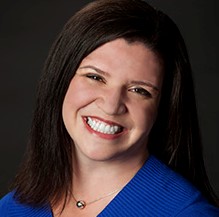
Jackie Slaugenhaupt
President, Teetotal Initiative
Jackie Slaugenhaupt is a nonprofit advocate and financial services professional with over 15 years of volunteer experience in nonprofit leadership and fundraising. She brings more than 25 years of experience in financial services and has held leadership roles at several Fortune 100 banks. A change and management expert with a specialty in data visualization, Jackie is also a person in recovery. Her lived experience informs her work as co-founder of Teetotal Initiative, a nonprofit focused on helping individuals sustain recovery through community and connection.

Lauren M. Broyles, PhD
Teetotal Initiative
Dr. Lauren Broyles serves as the Director of Creative Arts Programming for Teetotal Initiative. She is a woman in long term recovery, as well as a former addiction health services researcher and nurse. Lauren is a former addiction health services researcher, AMERSA Board Member, and Associate Editor for SAj. She currently works as a Senior Grant Writer & Editor in the Department of Psychiatry & Behavioral Health Sciences at Memorial Sloan Kettering Cancer Center.
Host:
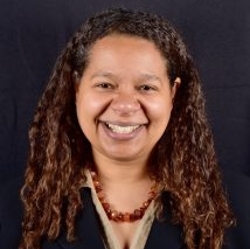
Holly Hagle, PhD
American Academy of Addiction Psychiatry
Dr. Holly Hagle serves as the Chief Learning and Research Officer for the American Academy of Addiction Psychiatry. Her expertise lies in applying Screening, Brief Intervention, and Referral to Treatment (SBIRT), with a particular focus on youth and young adults. Dr. Hagle has developed curricula addressing Adolescent Co-occurring Disorders, implementing SBIRT in youth settings, and creating educational content for transitional age youth. With over twenty years of experience as an addiction health services educator and researcher, her work spans treatment, recovery, and prevention, integrating applied research and education.
This episode will provide insight into an innovative and under-explored but critical component of recovery: the impact of social interaction on recovery capital ecosystems and prevention of return to use. Despite its importance, organizing substance-free events for the community as a recovery tool is underutilized, leaving a gap in day-to-day sober- and recovery-oriented quality of life. This episode highlights Teetotal Initiative’s unique, scalable model for sober-focused events, offering tangible ideas for complementing formal treatment with consistent, community-rooted programming that addresses return to use predictors, stigma, and supports long-term recovery success.
In this episode, we will:
- Identify three features that differentiate Teetotal Initiative’s model from other recovery support programs, communities, or services.
- Describe two ways Teetotal Initiative’s programming is strengthening both the recovery community and the broader community.
- Explain how Teetotal Initiative’s model and programming are helping to challenge or reduce self-stigma and social stigma around recovery.
Evaluation
Thank you for listen to Episode 1 of the “Innovation in Action: Building Stronger Communities” Podcast Series.
Please sign-up to our podcast mailing list above to be notified when the episode is release and to receive a link to complete SAMHSA’s required Training and Technical Assistance (TTA) GPRA Post-Event Form. This form will gather participant demographic information and satisfaction with the event. Responses are anonymous.
Presenters:
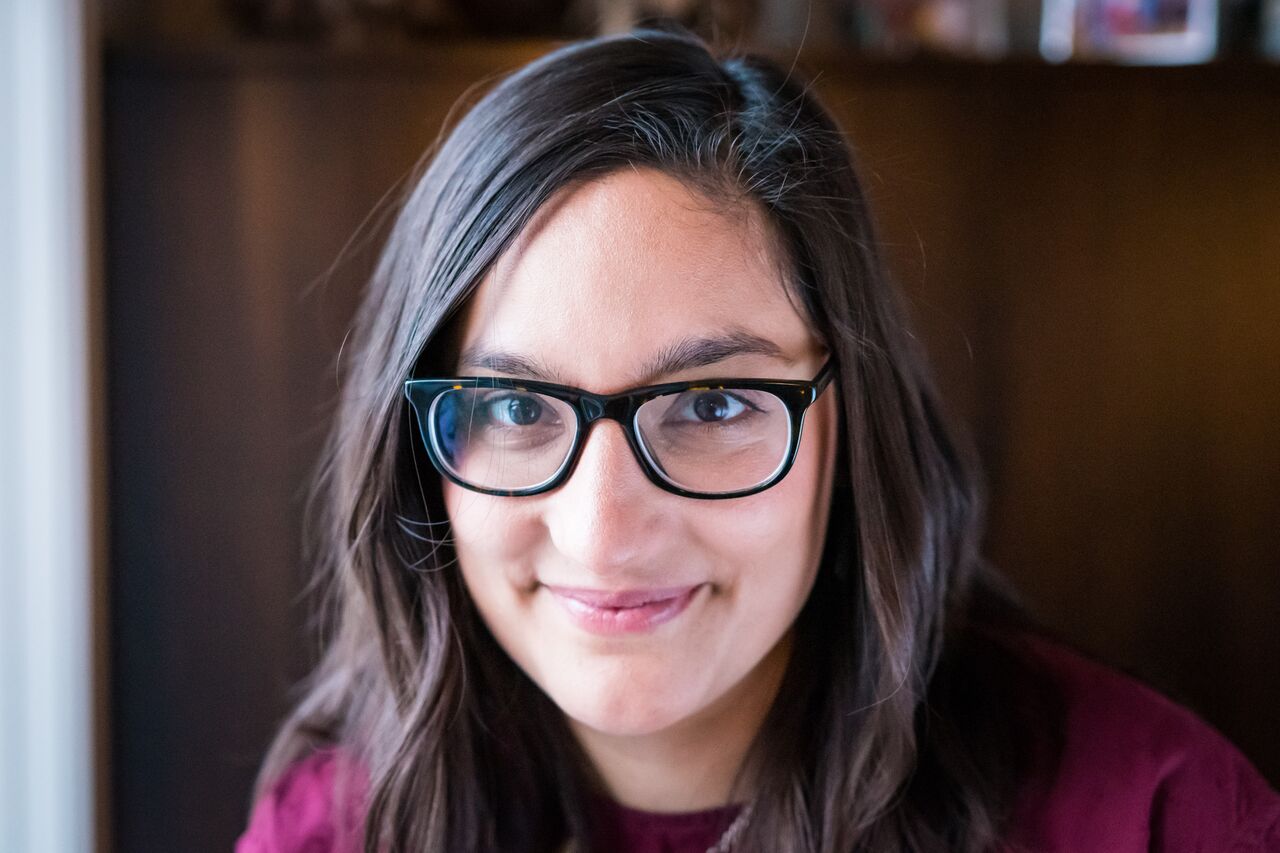
Triveni DeFries, MD, MPH
University of California, San Fransico
Dr. Triveni DeFries is a physician and Assistant Professor at the University of California, San Francisco and Core Faculty in the Institute of Global Health Sciences. She practices internal medicine and addiction medicine at San Francisco General Hospital. She is a clinician consultant on the Substance Use Warmline for the National Clinician Consultation Center. She co-leads the Program for Education on Drugs and Alcohol for Latine (PEDAL).
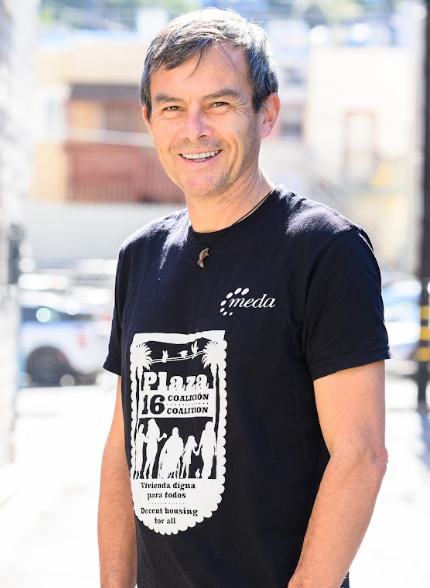
Dairo Romero, MPA
Mission Economic Development
Dairo Romero is an immigrant from Colombia with a lifelong passion for social justice, community empowerment, and equity for immigrant and Latino communities. He is Community Initiatives Manager at Mission Economic Development Agency in San Francisco, where he works to advocate for affordable housing in the Mission District. There, he supports families facing displacement and helps build grassroots leadership to fight for dignified living conditions.
He helped develop Promotoras Activas SF, a cooperative led by Latina women dedicated to health education, leadership training, and community outreach. He participated in the Program of Education on Drugs and Alcohol, helping to bring awareness and prevention strategies to Latino families and youth.
Host:

Marlene Martin, MD
University of California, San Francisco and San Francisco General Hospital
Marlene Martin, MD, is an Associate Professor of Clinical Medicine at UCSF, Director of Addiction Initiatives for the Latinx Center of Excellence, a hospitalist at San Francisco General Hospital (SFGH), and Director of the Addiction Care Team (ACT) at SFGH. Drawn to medicine to address health inequities and social injustices, her interests lie in systems improvement and innovation with a focus on addiction, community partnerships, Latine health, and care transitions. Marlene is committed to transforming systems of care to improve health outcomes for marginalized communities and ensuring that addiction care is compassionate, accessible, and equitable. She co-leads the Program for Education on Drugs and Alcohol for Latine (PEDAL).
The Program for Education in Drugs and Alcohol for Latine (PEDAL) is an example of a partnership between community-based organizations and addiction medicine clinicians. In this episode the guest discuss their collaboration to co-develop a training program for promotores, also known as community health workers, to address unhealthy substance use in the Latine community, offering a model for building workforce capacity to address increasing rates of overdose amongst Latine in a culturally and linguistically informed approach.
In this episode, we will:
- Demonstrate how to develop a collaborative partnership with community-based organizations to build workforce capacity.
- Identify the factors for effective implementation of a curriculum for community health workers.
- Name a strength to building the capacity of community health workers to address substance use.
Evaluation
Thank you for listening to Episode 2 of the “Innovation in Action: Building Stronger Communities” Podcast Series.
Please sign-up to our podcast mailing list above to be notified when the episode is release and to receive a link to complete SAMHSA’s required Training and Technical Assistance (TTA) GPRA Post-Event Form. This form will gather participant demographic information and satisfaction with the event. Responses are anonymous.
Presenters:
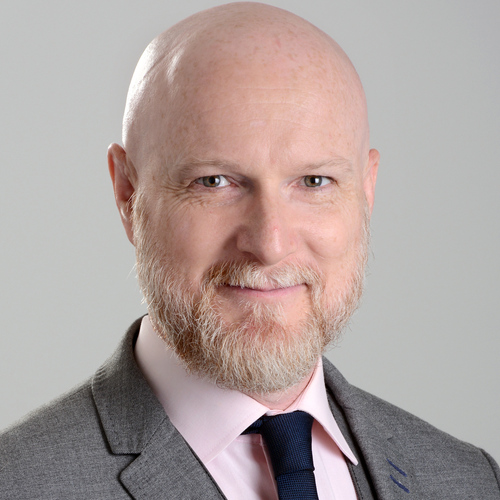
Phil McNamara, BA, CASAC-T
MATTERS – UBMD Emergency Medicine
Phil McNamara is the Outreach Manager at MATTERS Network. Leading a team of Regional Outreach Coordinators across NYS, connecting individuals to outpatient follow-up care.
He has a background as an SUD Counselor specializing in MOUD at a Buffalo-based OTP, and as a Community Outreach Coordinator specializing in HCV Linkage.
Phil is the founder of Buffalo Resilience a nonprofit providing meals and training to underserved communities in WNY. He believes that a strong community can offer many different paths to recovery and is passionate about building strong community connections.
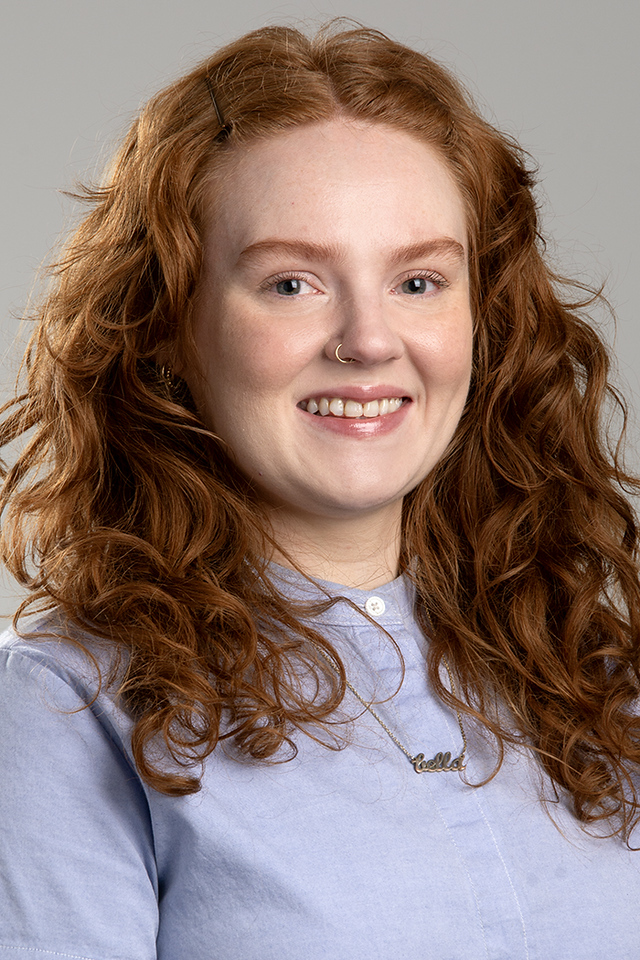
Isabella Wilklow, BA
MATTERS – UBMD Emergency Medicine
Isabella Wilklow is the Support Services Coordinator at MATTERS, where she assists individuals seeking connection to treatment for opioid use disorder. Her work is rooted in advocacy & compassion.
Host:

Elizabeth Abbs, MD
University of California, San Francisco and San Francisco Department of Public Health
Elizabeth Abbs is a primary care addiction medicine provider in San Francisco. She cares for a complex cohort of patients who live in the Tenderloin neighborhood – many of whom use drugs. Her work at the San Francisco Department of Public Health focuses on reducing barriers to care for patients accessing medications for their substance use disorder, and improving safe (and compassionate) prescribing of controlled medications for chronic pain.
This episode will focus on the outreach and support service efforts within MATTERS that address barriers to treatment for opioid use disorder. This episode will dig deeper into MATTERS’ essential support structures that make treatment more accessible, which can enhance the likelihood of a successful connection once referrals are made.
The episode will cover how the program uses emergency telemedicine, peer networks, and wraparound programs to address barriers such as lack of insurance, transportation, and stigma. Additionally, it will discuss how follow-up with individuals navigating treatment helps to inform decision-making when it comes to the services MATTERS offers and how they communicate and interact with providers and partnering organizations
In this episode, we will:
- Identify means of creating a tailored referral system that streamlines connection to addiction medicine after jail or hospitalization to reduce barriers for patients seeking medications for OUD
- Demonstrate the critical role of community health navigation in successful care linkage
Evaluation
Thank you for listening to Episode 3 of the “Innovation in Action: Building Stronger Communities” Podcast Series.
Please sign-up to our podcast mailing list above to be notified when the episode is release and to receive a link to complete SAMHSA’s required Training and Technical Assistance (TTA) GPRA Post-Event Form. This form will gather participant demographic information and satisfaction with the event. Responses are anonymous.
Presenters:
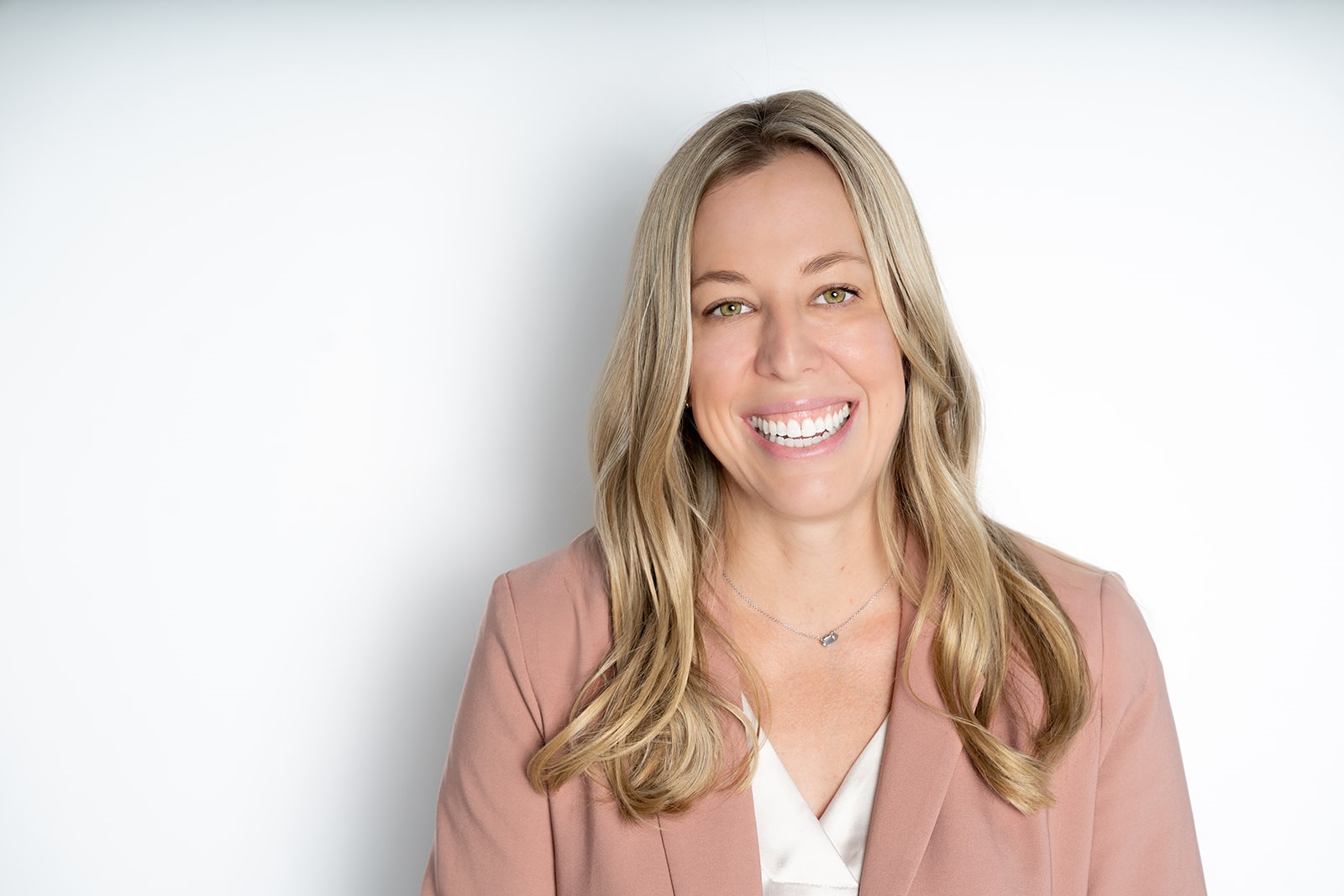
Holly Drone, PharmD
Hennepin Healthcare and Hennepin EMS
Holly Drone is a Clinical Pharmacist at Hennepin Healthcare and Hennepin EMS specializing in emergency medicine and prehospital emergency care. She supports a field-based buprenorphine induction program and co-leads a team of paramedics focused on bridging patients from emergency care to social and addiction medicine services. Her work focuses on reducing barriers to care, supporting patients throughout their recovery journey, and advocating for EMS’ role in combating the opiate crisis.
Jackson Thiets
Hennepin EMS
Jackson Thiets is a dedicated paramedic at Hennepin EMS with 4 years of experience. He is a member of the Hennepin EMS Bridge team, a team of paramedics connecting patients with opioid use disorder from emergency settings to community resources.
Host:
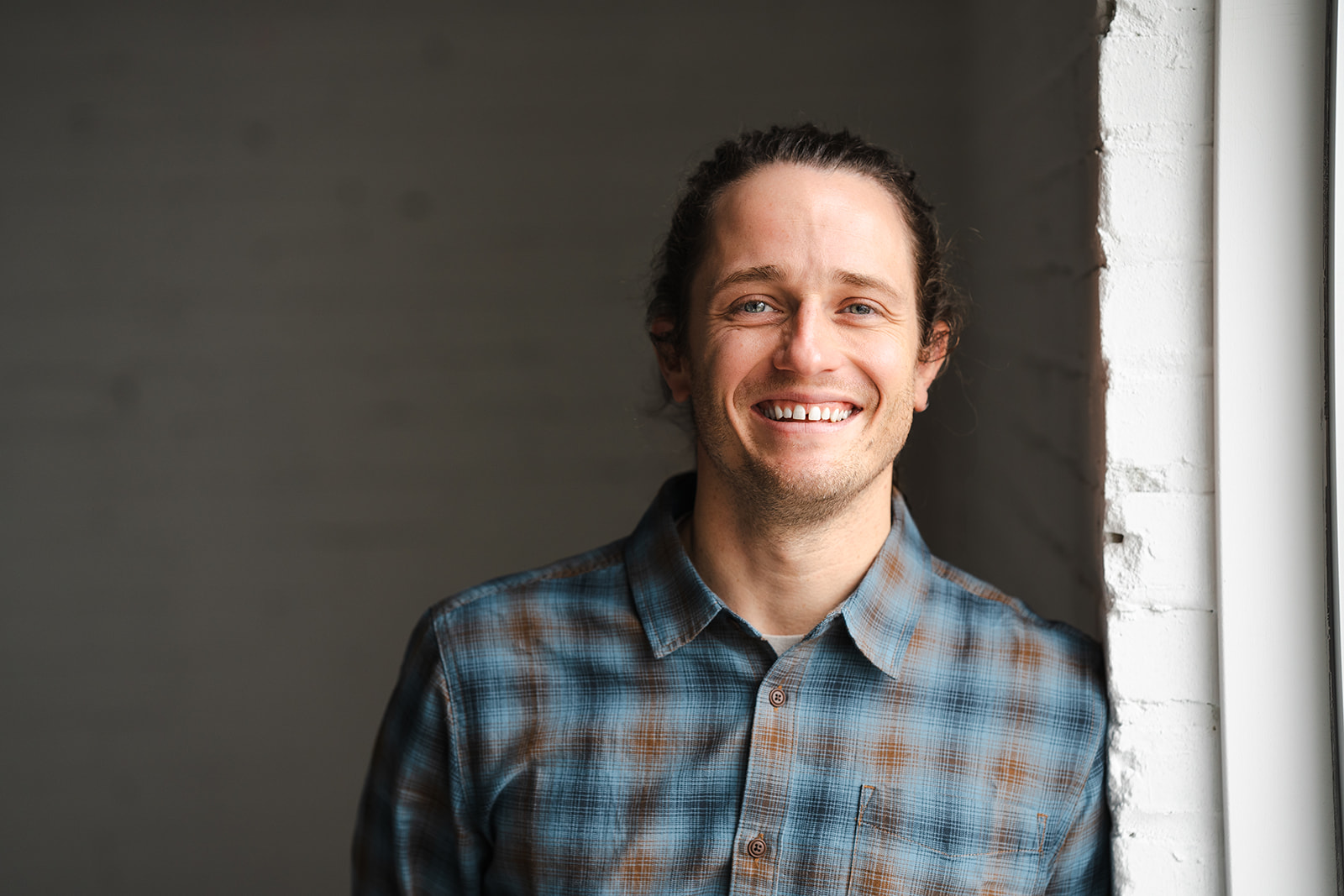
Tim Kummer, MD
Hennepin Healthcare and Hennepin EMS
Dr. Tim Kummer is an Emergency Physician and EMS Medical Director at Hennepin Healthcare, where he leads several initiatives focused on addressing the opioid crisis. He founded the Hennepin Bridge Program, an innovative team that connects patients with opioid use disorder to treatment through ED consults, field buprenorphine inductions, and follow-up care. Dr. Kummer also helped launch one of the first prehospital buprenorphine programs in the country and serves on the National Association of EMS Physicians work group developing national guidance on EMS’s role in the opioid epidemic. His work is grounded in bringing care directly to patients—whether in the field, at home, or in the emergency department—and meeting them where they are on their journey to recovery.
In this episode, host Dr. Tim Kummer is joined by Holly Drone, EMS Pharmacist, and Jackson Thiets, paramedic and buprenorphine advocate with the Hennepin EMS Bridge Program. Together, they share the journey of implementing a paramedic-driven buprenorphine protocol, the lessons learned from their first year, and how the program has evolved to include holistic post-overdose care. The conversation highlights barriers faced, culture shifts needed in EMS and ED settings, and how moving from judgment to empathy—and empathy to action—can transform care for patients with opioid use disorder.
In this episode, we will:
- Describe the development and implementation of a paramedic-driven buprenorphine protocol in a large urban EMS system, including the clinical rationale, training structure, and system-level logistics.
- Identify common barriers to prehospital buprenorphine use—such as stigma, protocol hesitancy, and supply chain issues—and explore practical strategies for overcoming them through clinical leadership and team buy-in.
- Understand the role of interdisciplinary collaboration—between EMS, pharmacists, and peer support specialists—in creating a holistic, post-overdose care model like the Hennepin EMS Bridge Program.
- Recognize how EMS and Emergency Departments can move from judgment-based responses to compassionate, action-oriented care for patients with opioid use disorder, reframing naloxone-only approaches to include long-term treatment initiation.
Evaluation
Thank you for listening to Episode 4 of the “Innovation in Action: Building Stronger Communities” Podcast Series.
Please sign-up to our podcast mailing list above to be notified when the episode is release and to receive a link to complete SAMHSA’s required Training and Technical Assistance (TTA) GPRA Post-Event Form. This form will gather participant demographic information and satisfaction with the event. Responses are anonymous.
Presenters:
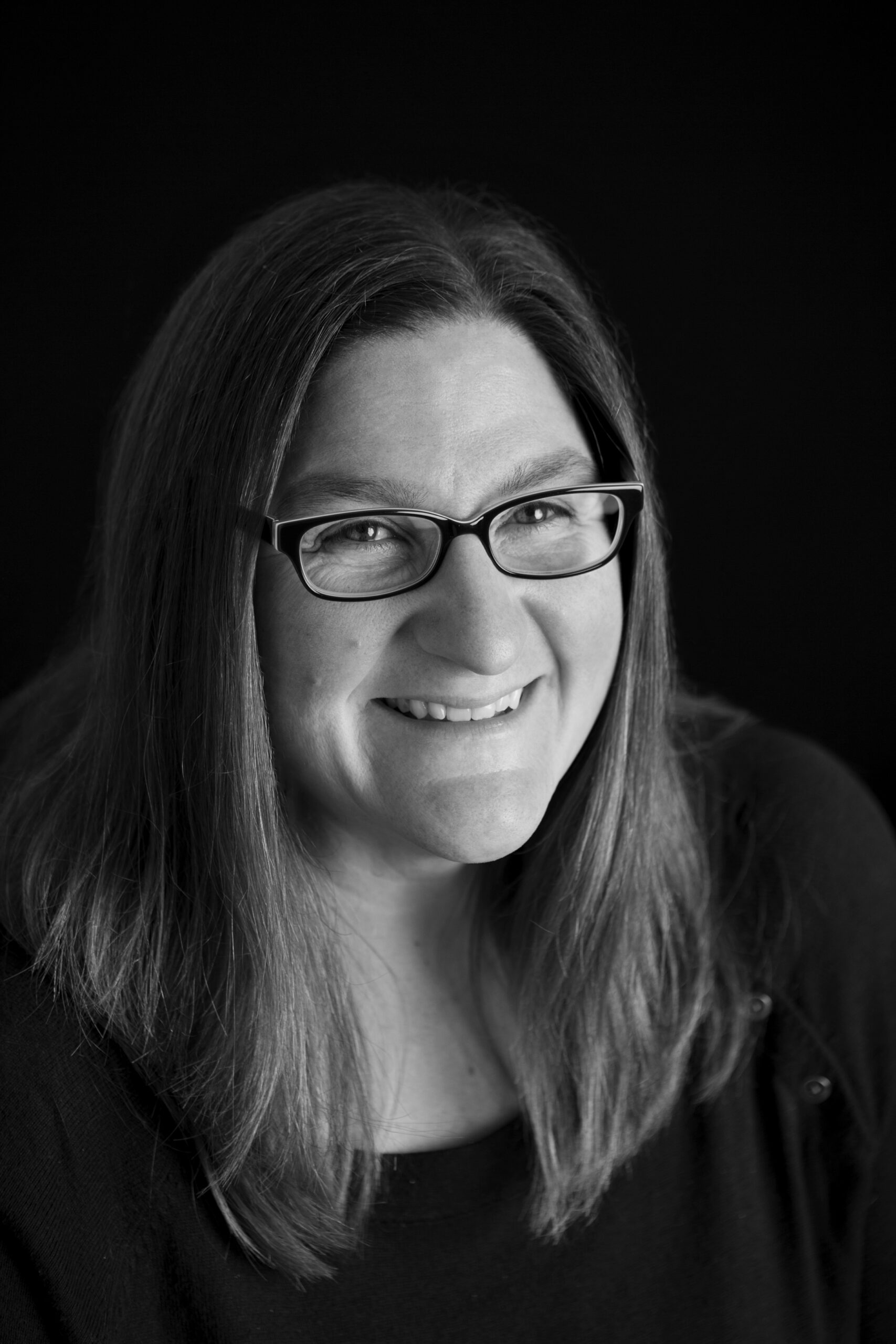
Kelly Brandon, MSN, RNC, CNS, IBCLC, CARN
San Francisco General Hospital
Kelly Brandon works as a Perinatal Clinical Nurse Specialist at San Francisco General Hospital. Prior to her nursing work she was a counselor and program manager for a street outreach program in San Francisco. In her role as the Co-Director of the ACTNL program she aims to bring evidence-based, easy to access, compassionate care to all patients throughout the SFGH hospital system.
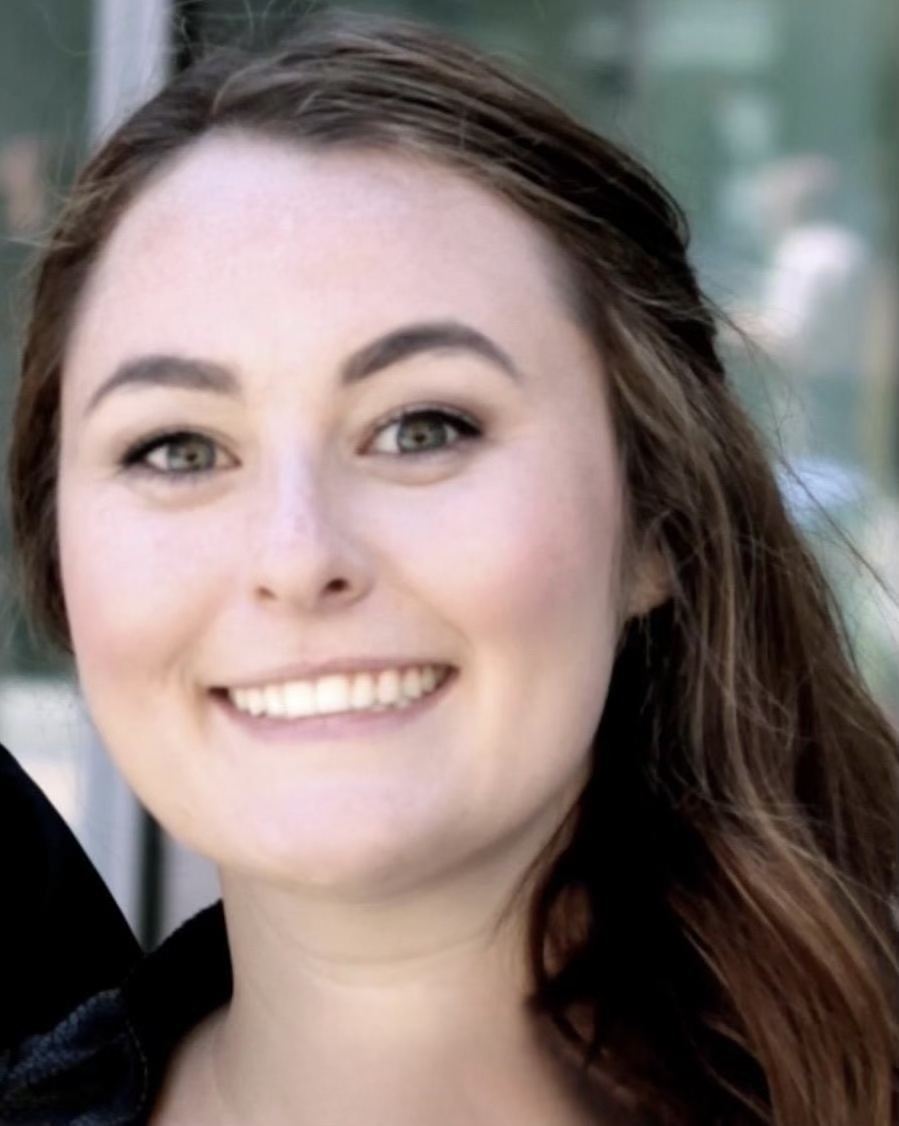
Johanna Sluser, MSN, FNP-C, CARN-AP
San Francisco General Hospital
Johanna Sluser is a nurse practitioner on the Addiction Care Team (ACT) at San Francisco General Hospital and co-director of the ACT Nurse Liaison Program. She has worked in San Francisco’s community behavioral health system since 2016, focusing on crisis mental health services and substance use care. She is dedicated to expanding access to low-barrier substance use treatment and providing care that preserves dignity and promotes the health of individuals who use substances.
Host:
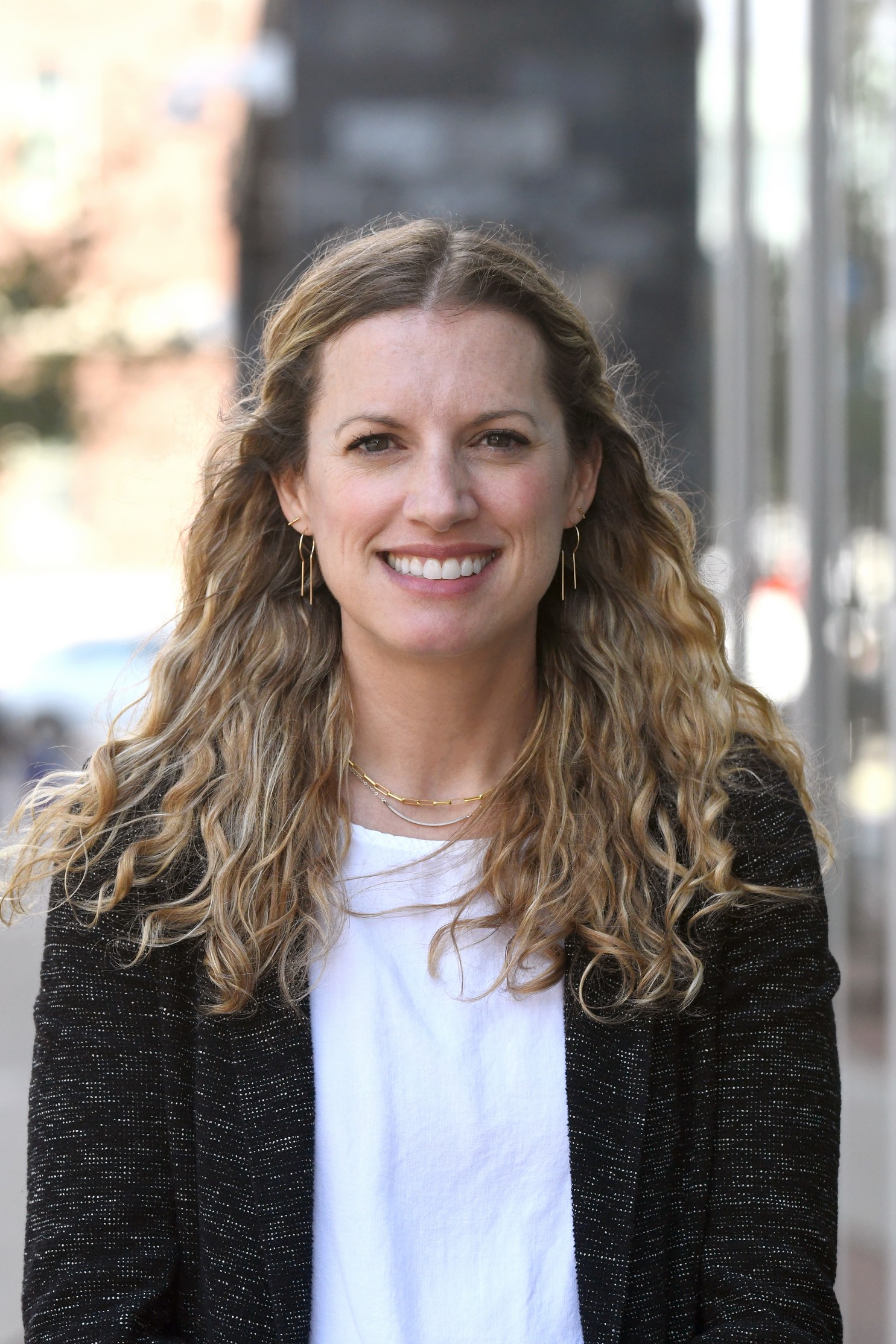
Kristin Wason, MSN, NP-C, CARN
Boston Medical Center
Kristin Wason is a Nurse Practitioner at Boston Medical Center and serves as the Director of the Grayken Addiction Nursing Fellowship, the first addiction fellowship program for registered nurses in the United States. Kristin has experience working in numerous addiction treatment settings and currently provides direct patient care as a member of BMC’s Behavior Response Team and as a methadone provider at HCRC Boston. Kristin has published in several peer reviewed journals and is first author of Addiction Nursing Competencies: A Comprehensive Toolkit for the Addictions Nurse. She has also co-authored and authored numerous guidelines to treat patients with substance use disorders in the outpatient setting.
This episode explores the Addiction Care Team Nurse Liaison Program (ACTNLP), a program that equips hospital nurses with substance use disorder (SUD) training to reduce stigma and improve outcomes for patients with SUD. Developed within an urban safety-net hospital, the program includes didactics, precepting with addiction specialists, and community site visits. Participants become SUD champions, educators, and leaders on their units. Early outcomes show high program completion and addiction certification rates, strong curriculum relevance, and improved knowledge and engagement. ACTNLP is a feasible, scalable model to enhance nursing capacity to provide addiction care in hospital settings.
In this episode, we will:
- Describe the core components of the ACTNL program training and the ACTNL role in clinical implementation on the unit.
- Identify key benefits of training nurses in evidence-based addiction care, including impacts on patient outcomes, interdisciplinary communication, and stigma reduction.
- Recognize the value of the ACTNL program in its efforts to enhance nursing addiction education.
- Identify barriers to implementing nurse-led addiction training programs and explore strategies to overcome them.
- Assess potential for adaptation in diverse healthcare settings.
Evaluation
Thank you for listening to Episode 5 of the “Innovation in Action: Building Stronger Communities” Podcast Series.
Please sign-up to our podcast mailing list above to be notified when the episode is release and to receive a link to complete SAMHSA’s required Training and Technical Assistance (TTA) GPRA Post-Event Form. This form will gather participant demographic information and satisfaction with the event. Responses are anonymous.
Presenters:
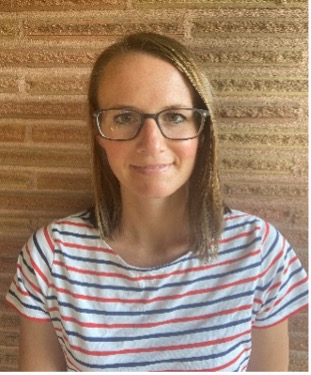
Emily Skogrand, PharmD
Oregon Health and Science University
Emily Skogrand is a clinical pharmacist at Oregon Health and Science University in Portland, Oregon. She works with the inpatient Internal Medicine department and on the addiction consult service with a special interest in optimizing care for patients with substance use disorders.

Mike Winer, MD
Oregon Health & Science University
Dr. Mike Winer serves as the Medical Director of a withdrawal management center in Portland, Oregon, and is an Assistant Professor in the Section of Addiction Medicine at Oregon Health & Science University. His work focuses on clinical innovation aimed at breaking down barriers to substance use care.
Host:
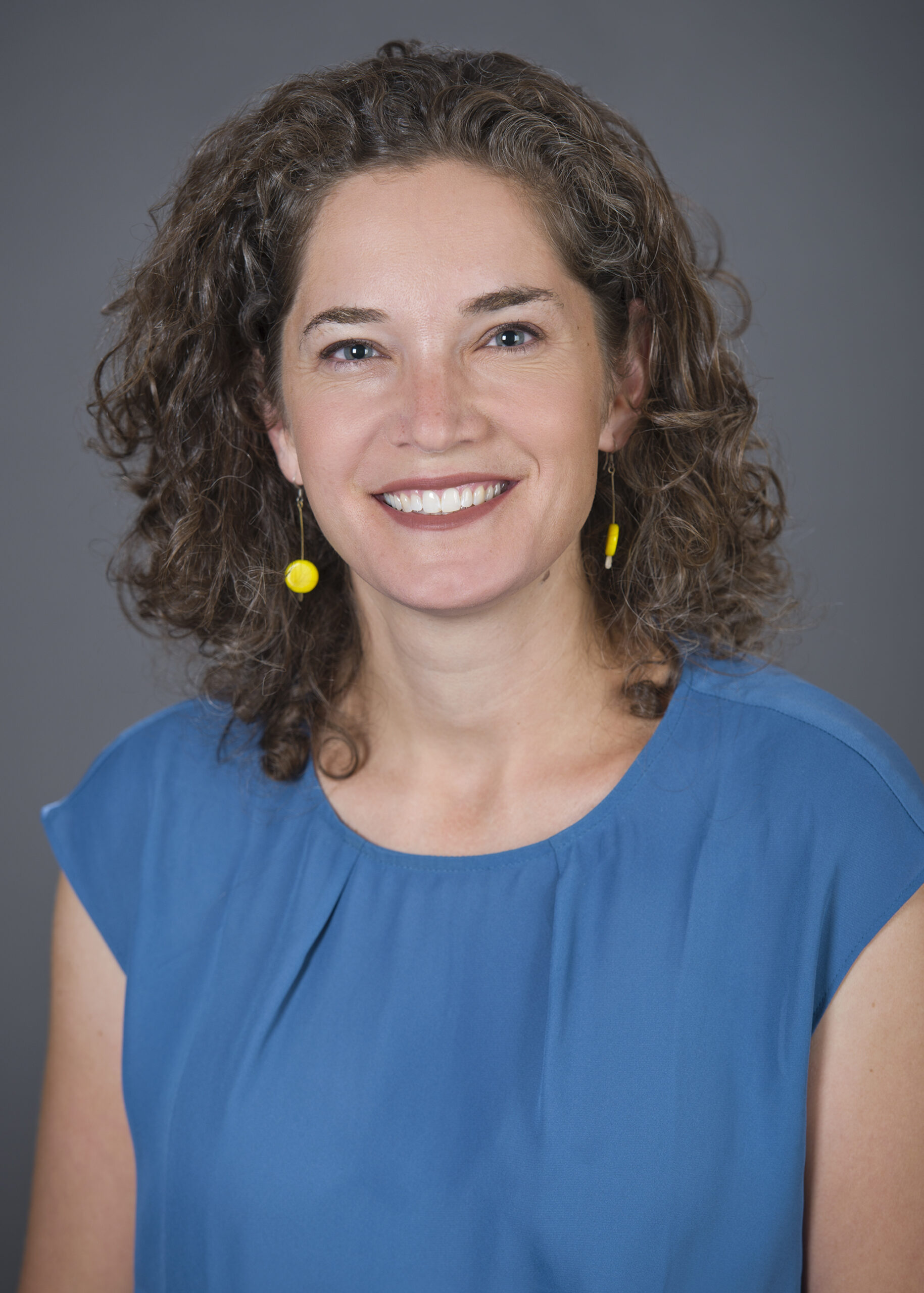
Honora Englander, MD
Oregon Health & Science University
Dr. Honora Englander is founder and Principal Investigator of the Improving Addiction Care Team (IMPACT), a nationally recognized model for hospital-based addiction care that includes physicians, social workers, and peers with lived experience in recovery. Dr Englander’s work is at the intersection of addiction, health system transformation, and public health.
Medications methadone and buprenorphine – are the most effective treatments for opioid use disorder. Decades of evidence show that they treat acute withdrawal and cravings, improve quality of life, reduce risk for HIV and hepatitis C, reduce overdose, and reduce risk of drug-related and all-cause mortality. Yet in the US, fewer than 1 in 5 people with OUD accesses them. In the US, Methadone is regulated unlike any other medication, including methadone for pain. With a few exceptions, in ambulatory settings, methadone must be administered from an opioid treatment program – a highly regulated addiction treatment setting. This episode talks with two clinical innovators who are leading work to bring methadone into critical access points in the SUD care continuum – withdrawal management settings and the hospital.
In this episode, we will:
- Describe the importance of utilizing methadone in withdrawal management settings and at hospital discharge.
- Provide practical guidance to develop processes to implement methadone administration/ dispensation via the 72h rule in non-OTP settings, drawing on experience from withdrawal management and hospital settings.
- Describe some potential challenges and examples of how to address them.
- Show what 72-hour methadone dispense has potential to achieve in withdrawal management and hospital settings.
Resources:
Withdrawl Management Methadone Checklist
Evaluation
Thank you for listen to Episode 6 of the “Innovation in Action: Building Stronger Communities” Podcast Series.
Please sign-up to our podcast mailing list above to be notified when the episode is release and to receive a link to complete SAMHSA’s required Training and Technical Assistance (TTA) GPRA Post-Event Form. This form will gather participant demographic information and satisfaction with the event. Responses are anonymous.
Presenters:

Kimber King
Boston Medical Center, SafeSpot Overdose Hotline
Kimber King (she/her) is the Operations Coordinator for the SafeSpot Overdose Hotline, an innovative virtual “spotting” service based at Boston Medical Center. A drug war and overdose survivor, she brings both lived experience and leadership to her work supporting people who use drugs and expanding access to overdose prevention services. Kimber’s story was featured on This American Life (“The Call”), and today she channels her journey into building workforce capacity, training operators, and advocating for practical overdose prevention strategies that save lives. She is also pursuing a Community Health Worker Certificate at the Community College of Vermont, further grounding her commitment to community health and meaningful change.

Tj Thompson
Boston Medical Center, SafeSpot Overdose Hotline
Tj Thompson (they/them) is the Safety Coordinator at SafeSpot Overdose Helpline based out of Boston Medical Center. They have been advocating for the implementation and legalization of Overdose Prevention Centers in Massachusetts since 2019. They served on The City of Somerville SCS (Supervised Consumption Site) Taskforce from 2020-2022. Tj is currently serving on the Advisory Council for Substance Use for the Massachusetts Attorney General’s Office. Tj recently returned from Melbourne, Australia where they served as a consultant for the State of Victoria while they began to set up an overdose prevention hotline heavily influenced by the SafeSpot model.
Host:

Ruchi Shah, DO
Albert Einstein College of Medicine, Montefiore Medical Center
Ruchi Shah, DO (she/her) is an Assistant Professor of Medicine in the Division of General Internal Medicine at Montefiore Medical Center & Albert Einstein College of Medicine. She is the medical director of the Wakefield Hospital Addiction Medicine Consult Service and also provides primary care, addiction medicine, and reproductive healthcare outpatient. Ruchi strives to turn her big feelings into meaningful change and is grateful for the privilege of partnering with and learning from PWUD in their care.
SafeSpot Overdose Prevention Hotline provides free, 24/7 virtual spotting services to people who use drugs alone. Born out of the grassroots Never Use Alone Massachusetts line, SafeSpot has evolved into a nationally recognized program housed at Boston Medical Center. In this episode, host Dr. Ruchi Shah speaks with Kimber King and TJ Thompson about SafeSpot’s journey from a volunteer-run initiative to a fully funded overdose prevention organization. Together, they discuss the importance of lived experience, lessons learned from rapid growth, and how SafeSpot is saving lives while challenging stigma, health disparities, and overdose risk in both urban and rural communities.
In this episode, we will:
- Identify the risks of using substances alone and how virtual spotting addresses these risks.
- Analyze how stigma, isolation, and health disparities contribute to overdose deaths.
- Apply strategies for integrating hotline models like SafeSpot into clinical and community settings, including rural areas.
- Demonstrate how to do a warm hand-off to SafeSpot in a traditional healthcare setting
Evaluation
We look forward to sharing Episode 7 of the “Innovation in Action: Building Stronger Communities” Podcast Series.
Please sign-up to our podcast mailing list above to be notified when the episode is release and to receive a link to complete SAMHSA’s required Training and Technical Assistance (TTA) GPRA Post-Event Form. This form will gather participant demographic information and satisfaction with the event. Responses are anonymous.
Sponsored by:
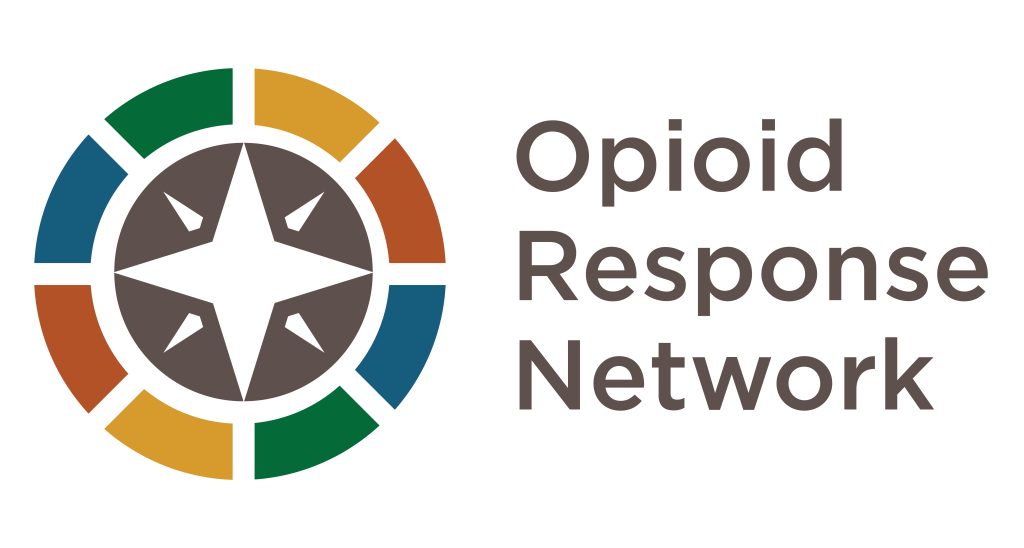
Funding for this initiative was made possible (in part) by grant no. 1H79TI088037 from SAMHSA. The views expressed in written conference materials or publications and by speakers and moderators do not necessarily reflect the official policies of the Department of Health and Human Services; nor does mention of trade names, commercial practices, or organizations imply endorsement by the U.S. Government.
Podcast DisclaimerThe information, opinions, and recommendations presented in this podcast are for general informational purposes only and should not be considered medical advice. This podcast is not intended to replace professional medical consultation, diagnosis, or treatment. Any reliance on the information provided in this podcast is at your own risk. While every effort is made to present accurate and up-to-date information, AMERSA makes no warranty, guarantee, or representation regarding the accuracy or sufficiency of the content featured.
The views expressed by guests are their own and do not necessarily reflect the views of AMERSA. Their appearance on this podcast does not imply an endorsement by AMERSA of them, their viewpoints, or any entity they represent. Unless explicitly stated otherwise, AMERSA does not endorse, approve, recommend, or certify any information, product, process, service, or organization mentioned in this podcast. Information from this podcast should not be referenced in any way that implies such approval or endorsement.
AMERSA expressly disclaims all liability for any direct, indirect, incidental, or other damages resulting from an individual’s use of, reference to, reliance on, or inability to use this podcast or the information presented in it.
Stigma and Substance Use: Rewriting the Narrative
AMERSA is proud to announce a new podcast series exploring the pervasive impact of stigma on individuals and communities affected by substance use disorders (SUD), featuring insights from experts, including individuals with lived experience and multidisciplinary professionals. Episodes will unpack the roots of stigma, its effects on care access and outcomes, and strategies to foster empathy, understanding, and inclusive support. The series, Stigma and Substance Use: Rewriting the Narrative, includes eight episodes sponsored by PCSS-MOUD, featuring subject matter experts across multiple disciplines.
Presenter:

Joe Wright, MD
Department of Urban Studies and Planning, MIT; and Boston Health Care for the Homeless Program
Joe Wright is an internist and addiction medicine specialist who has worked at Boston Health Care for the Homeless Program since 2015, most of that time as the medical director of their office-based addiction treatment program. He’s recently stepped down from his administrative roles at BHCHP and has become a research affiliate at the Massachusetts Institute of Technology’s Department of Urban Studies and Planning, where he’s working on a history of Boston’s “Mass/Cass” neighborhood. He’s also a Town Meeting member and housing advocate in the town of Belmont.
Host:
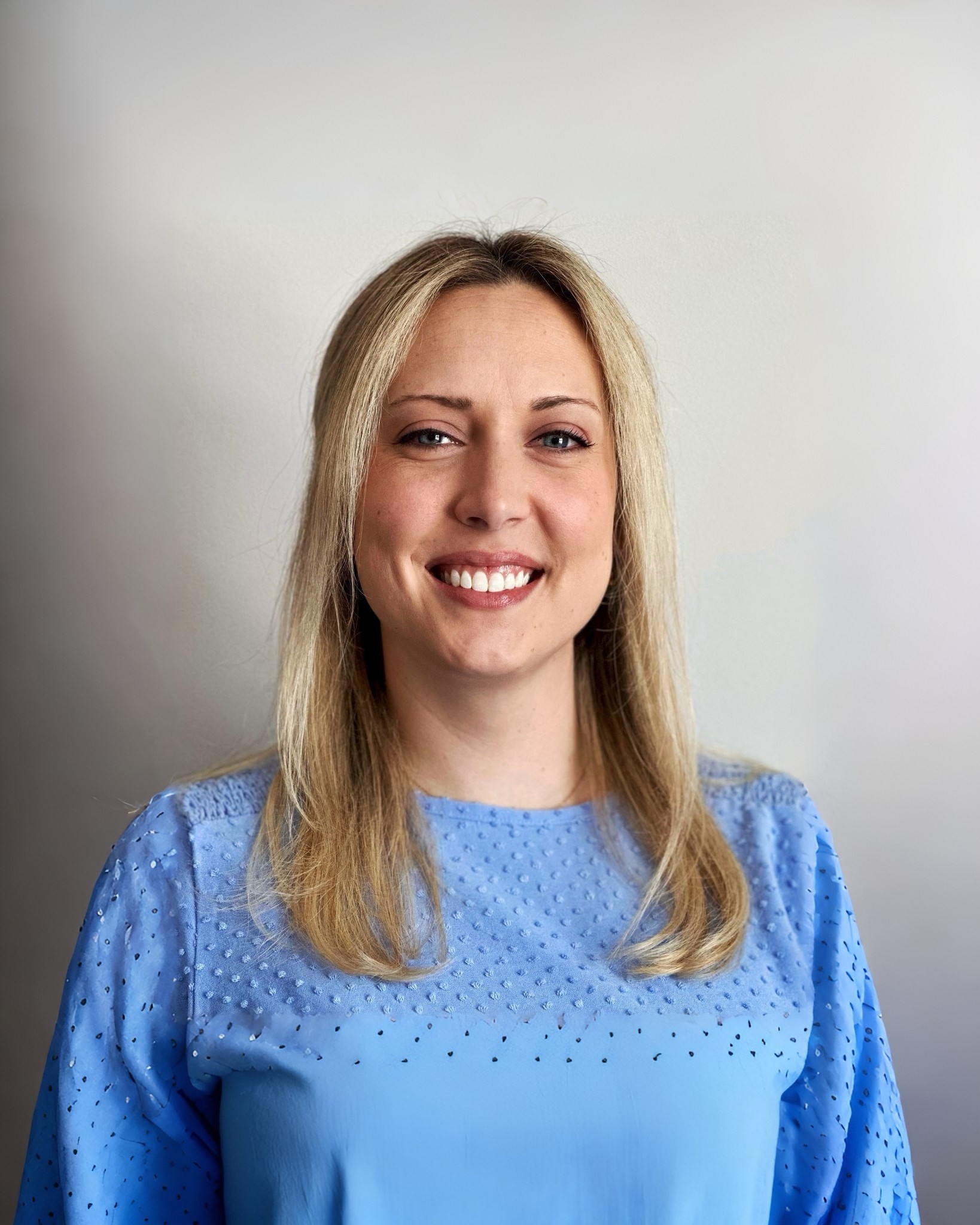
Allyson Pinkhover, MPH, CPhT, CHO
Brockton Neighborhood Health Center, Brockton, MA
Johns Hopkins Bloomberg School of Public Health, Baltimore, MD
Allyson Pinkhover is a public health practitioner focused on substance use and is the Director of Substance Use Services at Brockton Neighborhood Health Center. She is passionate about promoting the health and human rights of people who use drugs. Allyson completed her MPH in Community Health and Prevention at Drexel University and is a fifth-year DrPH candidate concentrating in Health Equity and Social Justice at the Johns Hopkins Bloomberg School of Public Health. She currently serves as the Chair of the Holbrook Board of Health.
This episode explores some of the ways that urban planning, zoning, policing, and the location of addiction services combine to create or enforce a geography of containment. In Boston, Dr. Wright argues, land prices and the politics of what another scholar describes as “complaint-oriented policing” led to a smaller and smaller area in which visible drug use and homelessness were tolerated, and services for people with substance use disorders were located. This kind of geography, variations of which can be seen in many cities and towns, can create both problems and opportunities for patients as well as complex challenges for substance use care and public health.
In this episode, we will:
- Understand the spatial relationships of drug use, addiction treatment services, and deliberately enforced “containment zones” as products of stigma.
- Recognize that the zoning, policing, and urban development strategies of drug containment can become a double-edged sword, providing certain kinds of safety for our patients and our work, and creating other kinds of problems for their well-being.
- Contrast these relationships with the spatial strategies of regulating other substance use and public health policy (i.e. alcohol use and alcohol users).
Evaluation
Thank you for listening to Episode 1 of the “Stigma and Substance Use: Rewriting the Narrative” Podcast Series.
Please sign-up to our podcast mailing list above to be notified when the episode is release and to receive a link to complete SAMHSA’s required Training and Technical Assistance (TTA) GPRA Post-Event Form. This form will gather participant demographic information and satisfaction with the event. Responses are anonymous.
Presenters:
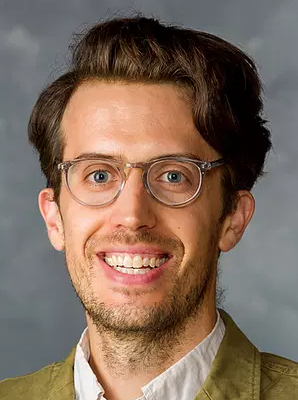
Devin Oller, MD, FACP, FASAM
University of Kentucky, Division of GIM
Dr Devin Oller is a primary care and addiction medicine physician at the University of Kentucky. He serves as a staff physician on the UK Addiction Consult and Education Service and directs the fourth year addiction medicine elective. He is also a Kentucky Colonel, which is a real thing!
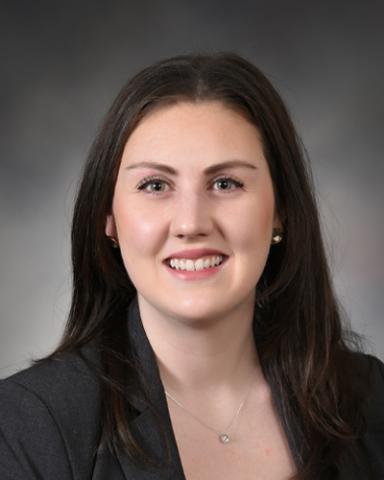
Kayla Strother, MSN, AGPCNP-C
University of Kentucky, Department of Internal Medicine
Kayla Strother is a nationally certified Advanced Practice Registered Nurse specializing in Adult-Geriatric Primary care. She is currently employed as an Advanced Practice Provider on the Addiction Consult and Education Services team at UK HealthCare in Lexington, Kentucky where she cares for patients in both outpatient and acute care inpatient settings.
Host:

Kate Roberts, PhD (Candidate), MA, MSW, LCSW
Bryn Mawr Graduate School of Social Work and Social Research/ Aurrera Health Group
Kate Roberts is a licensed clinical social worker and doctoral candidate in social work from Bryn Mawr College. Having a decade of experience working clinically in substance use treatment and harm reduction spaces, she is currently a Deputy Director of Behavioral Health Policy at Aurrera Health Group where she focuses on policy related to substance use.
This episode will explore the unique challenges faced by individuals with substance use disorder (SUD) in Appalachia, focusing on the ways stigma and healthcare access impact SUD outcomes in these communities. Starting with an examination of the historical events and media portrayals that have shaped perceptions of Appalachia, the session will proceed to highlight the key social, economic, and political drivers behind the SUD crisis in this region. Drawing from recent research and personal experience caring for this population, we will detail strategies for addressing stigma and delivering effective care for people living with SUD in Appalachia.
In this episode, we will:
- Review a framework for exploring Appalachian patients’ beliefs and knowledge about SUD.
- Examine patients’ experience within the larger narrative about SUD in Appalachian communities.
- Identify ways to address internalized stigma in healthcare settings and the community.
Evaluation
Thank you for listening to Episode 2 of the “Stigma and Substance Use: Rewriting the Narrative” Podcast Series.
Please sign-up to our podcast mailing list above to be notified when the episode is release and to receive a link to complete SAMHSA’s required Training and Technical Assistance (TTA) GPRA Post-Event Form. This form will gather participant demographic information and satisfaction with the event. Responses are anonymous.
Presenters:
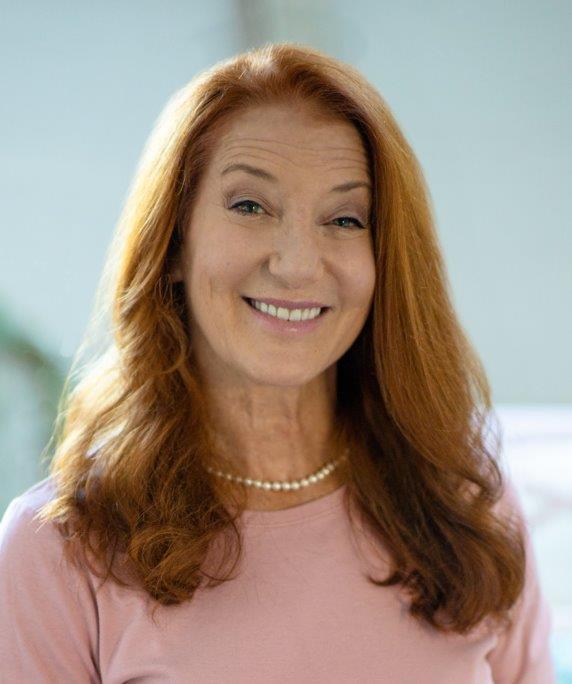
Siobhan Morse, MHSA, CRC, CAI, MAC
Universal Health Services
Siobhan Morse is Product Director for the Behavioral Health Division of UHS, a Fortune 300 healthcare company, with a focus on substance use and opioid use disorder product and program development and evaluation. Siobhan also serves on the National Advisory Board for the National Institute for Behavioral Health and REACH United, as well as participating in the Department of Justice Peer Workforce Workgroup. Siobhan has 19 years lived experience in recovery from substance use disorder and is trained as a peer support specialist.
Host:
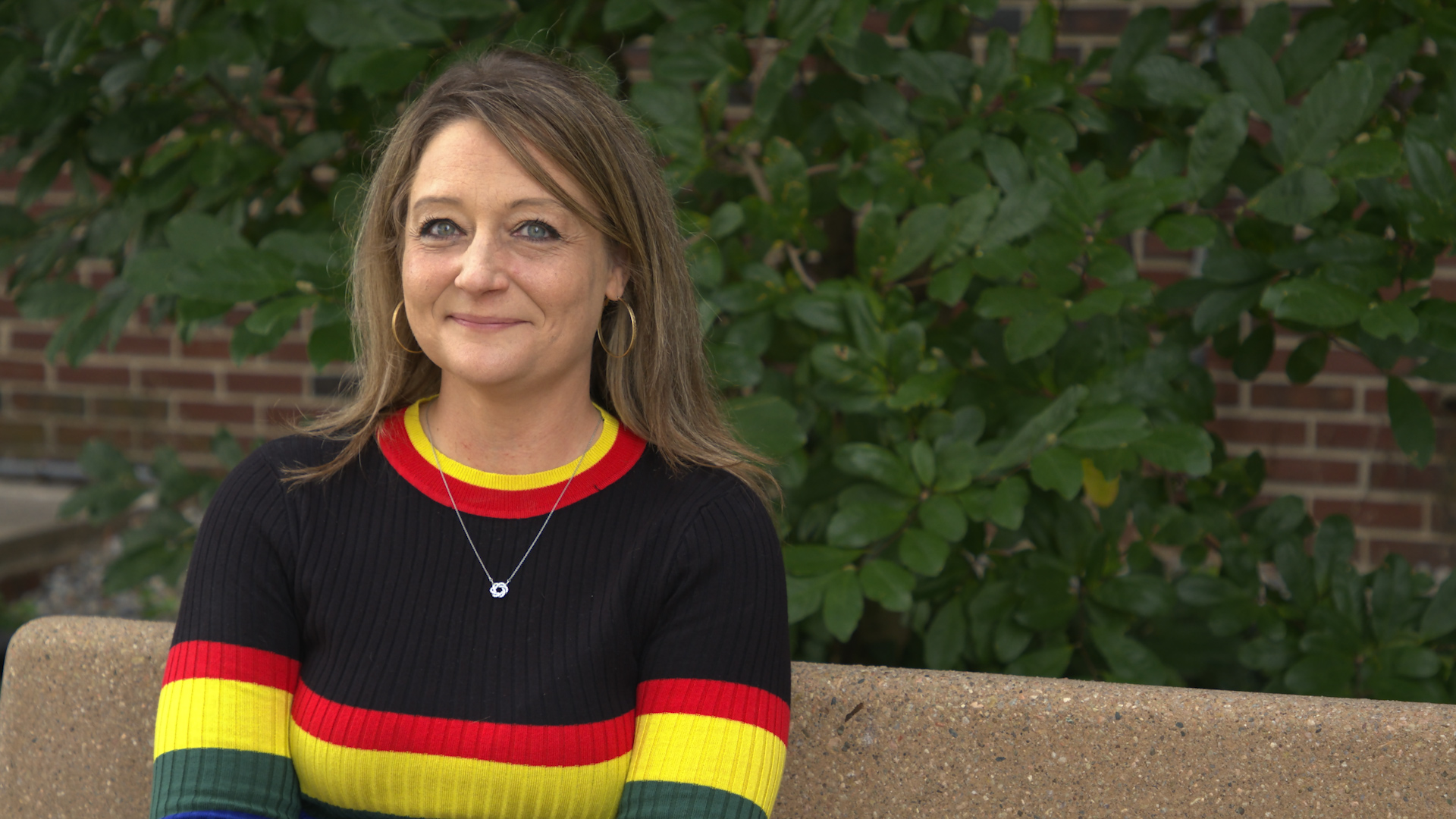
Nicole O’Donnell, BA, CRS
University of Pennsylvania
Nicole O’Donnell is a Certified Recovery Specialist, recognized by the Philadelphia Inquirer for excellence in patient care for her work at Penn Medicine’s Center for Addiction Medicine and Policy, which includes supporting patients at Penn Presbyterian, Pennsylvania Hospital, and the Hospital of the University of Penn. Ms. O’Donnell oversees the CareConnect Warmline, a low barrier and virtual buprenorphine bridge clinic, serving the Philadelphia area and surrounding counties connecting community members to evidence-based treatment.
Despite significant advancements in addiction treatment, stigma remains one of the greatest barriers to care for individuals struggling with substance use disorder (SUD). Among healthcare professionals, stigma can manifest in ways that impact patient outcomes, access to care, and overall recovery success. This episode will explore how leveraging peers—those with lived experience in recovery—can be a powerful tool in combating stigma in medical settings. The episode will discuss real-world applications of peer support, the latest statistics on stigma in healthcare, and actionable strategies for fostering a more compassionate approach to SUD treatment.
In this episode, we will:
- Review the reality of stigma and its impact on healthcare.
- Identify the role of peers in recovery and two major healthcare environments.
- Identify strategies for integrating peers into the workforce.
Evaluation
Thank you for listening to Episode 3 of the “Stigma and Substance Use: Rewriting the Narrative” Podcast Series.
Please sign-up to our podcast mailing list above to be notified when the episode is release and to receive a link to complete SAMHSA’s required Training and Technical Assistance (TTA) GPRA Post-Event Form. This form will gather participant demographic information and satisfaction with the event. Responses are anonymous.
Presenters:
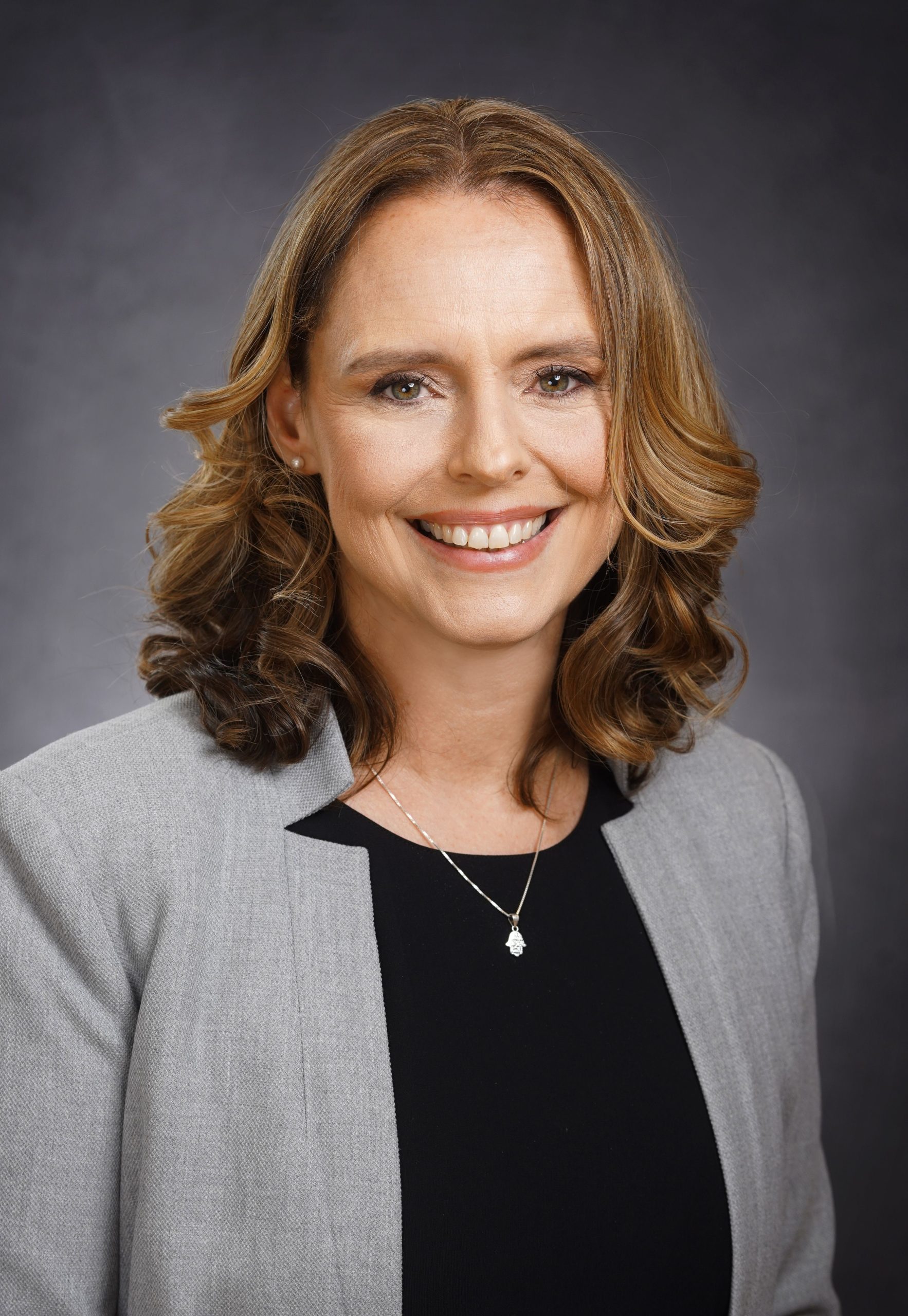
Rachel Haroz, MD, FAACT
Cooper University Health Care
Dr. Rachel Haroz is an emergency medicine, toxicology and addiction medicine physician in Camden, NJ focused on bringing innovative and low barrier access to care to vulnerable populations.
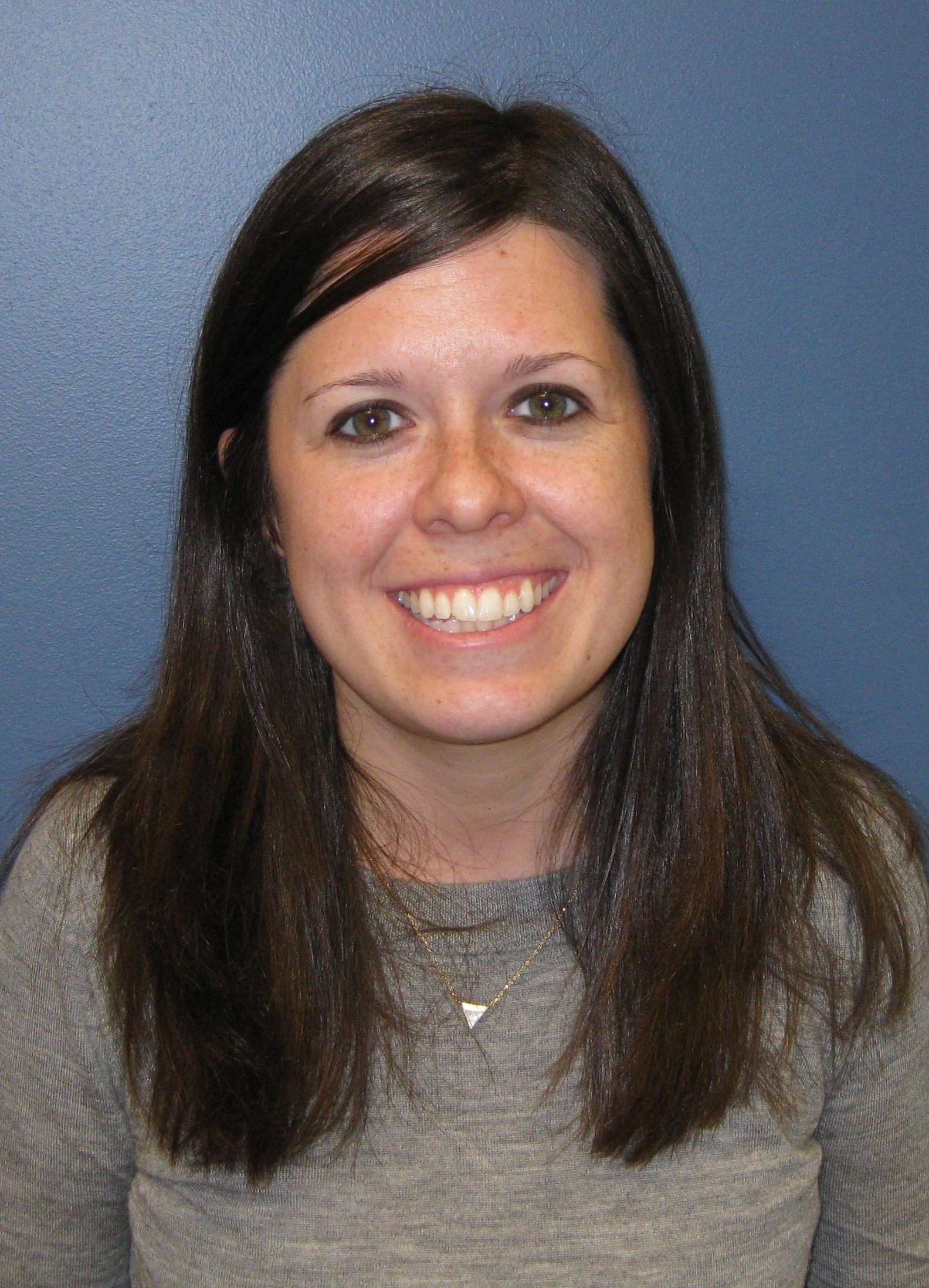
Jessica Heil, MS
Cooper University Health Care
Jessica Heil is a public health researcher specializing in addiction studies and health disparities. As Research Manager at Cooper University Health Care, she leads clinical research, supervises staff, and fosters community collaborations. She has extensive experience in opioid use disorder treatment and care, she is committed to advancing evidence-based healthcare interventions.
Host:
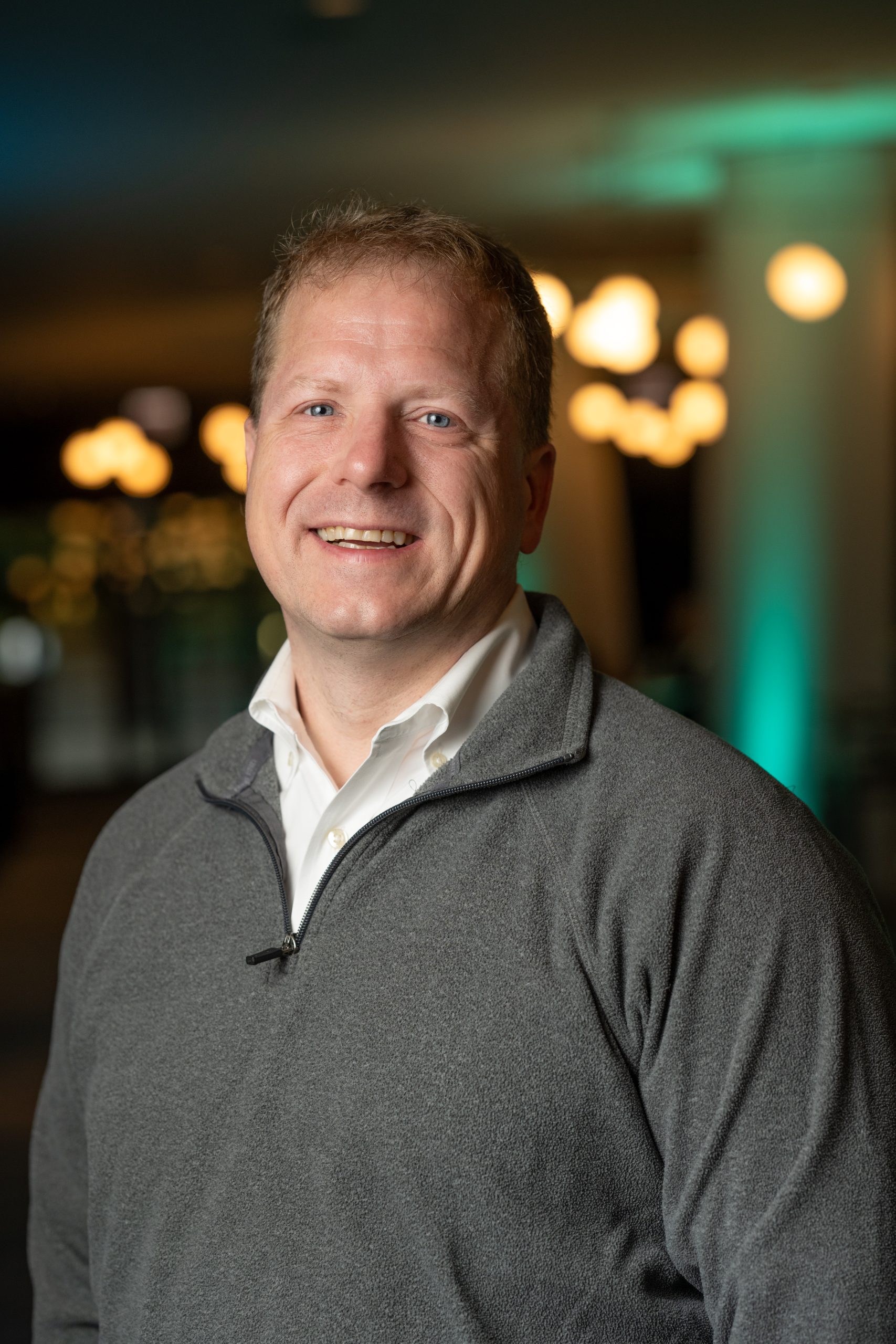
Jeffrey Bratberg, PharmD, FAPhA
The University of Rhode Island
Dr. Jeffrey Bratberg studies the essential and emerging roles community pharmacists play regarding opioid overdose response, substance use care, and opioid use disorder treatment. He advocates for pharmacists’ expanded roles in medication access, public health promotion, and policy change through research, practice, and teaching.
Emergency Department Bridge Programs allow ED physicians to connect patients in the ED with comprehensive addiction care. While the direct benefits of bridge programs for patients with opioid use disorder are known, what’s less understood is how these programs affect the lives of the providers themselves. This episode explores some of the lesser known benefits of ED Bridge Programs including improving physicians’ lives and reducing stigma in health care settings.
In this episode, we will:
- ED bridge programs may require extra work, but this study demonstrates they make life for ED providers better.
- Much attention is paid to hard data and quantitative research, but qualitative studies can be persuasive as well.
- We all should acknowledge that people need to find meaning in their work and incentivize programs that generate that meaning.
Evaluation
Thank you for listening to Episode 4 of the “Stigma and Substance Use: Rewriting the Narrative” Podcast Series.
Please sign-up to our podcast mailing list above to be notified when the episode is release and to receive a link to complete SAMHSA’s required Training and Technical Assistance (TTA) GPRA Post-Event Form. This form will gather participant demographic information and satisfaction with the event. Responses are anonymous.
Presenters:

Michele Durham, M.Ed
BEAT AIDS Coalition Trust
Michele Durham is the 31 year CEO of BEAT AIDS, the largest, longest-lasting HIV/AIDS Services Organization in South Texas. She holds a Bachelors of Business Administration degree in accounting from Lamar University and a Master’s degree in psychological education from the University of Texas at San Antonio with an emphasis in guidance and counseling. She has been working in the field of substance use disorder as it intersects with HIV in the South for over 35 years.
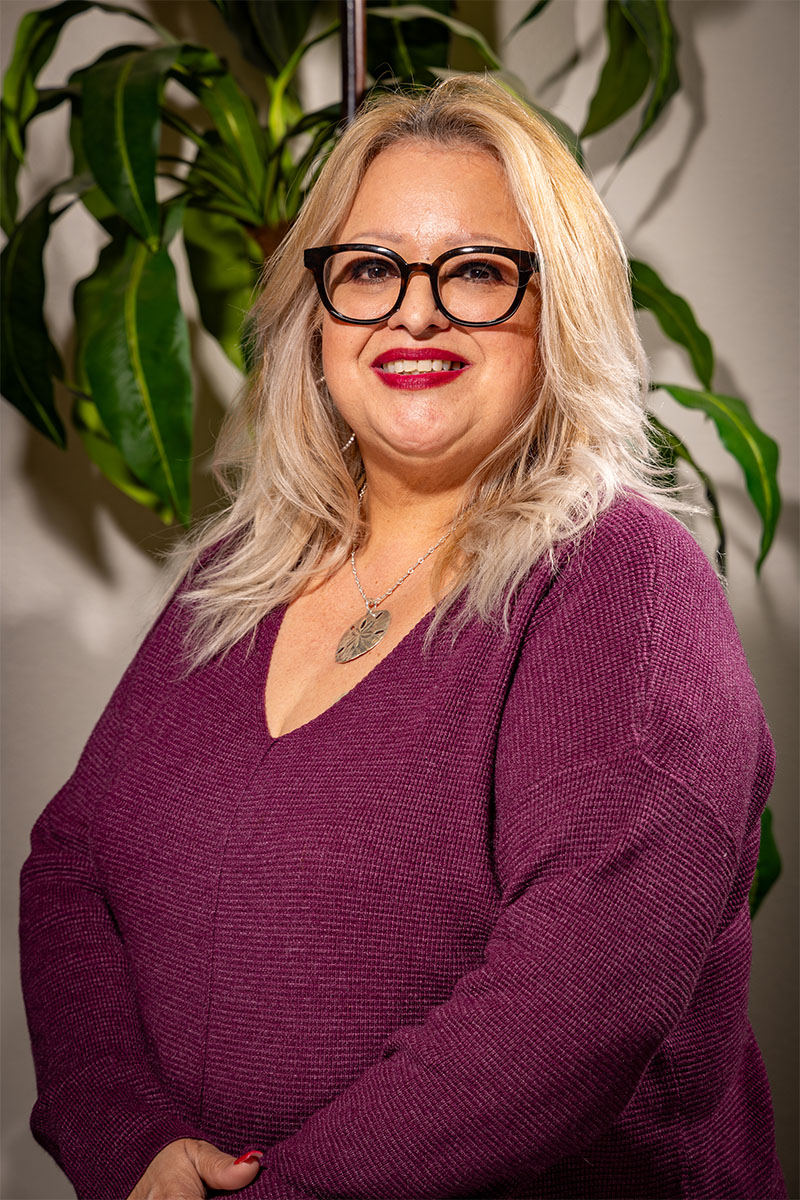
Cindi Salinas, Licensed Substanse Use Disorder Counselor
BEAT AIDS Coalition Trust
Cindi Salinas is a substance use disorder counselor in Texas. She is a graduate of Elmhurst College and the Institute of Chemical Dependency Studies. She has been working in the field of substance use disorder as a counselor for eight years and in direct care for four years. She also has unique insight as someone with lived experience.
Host:
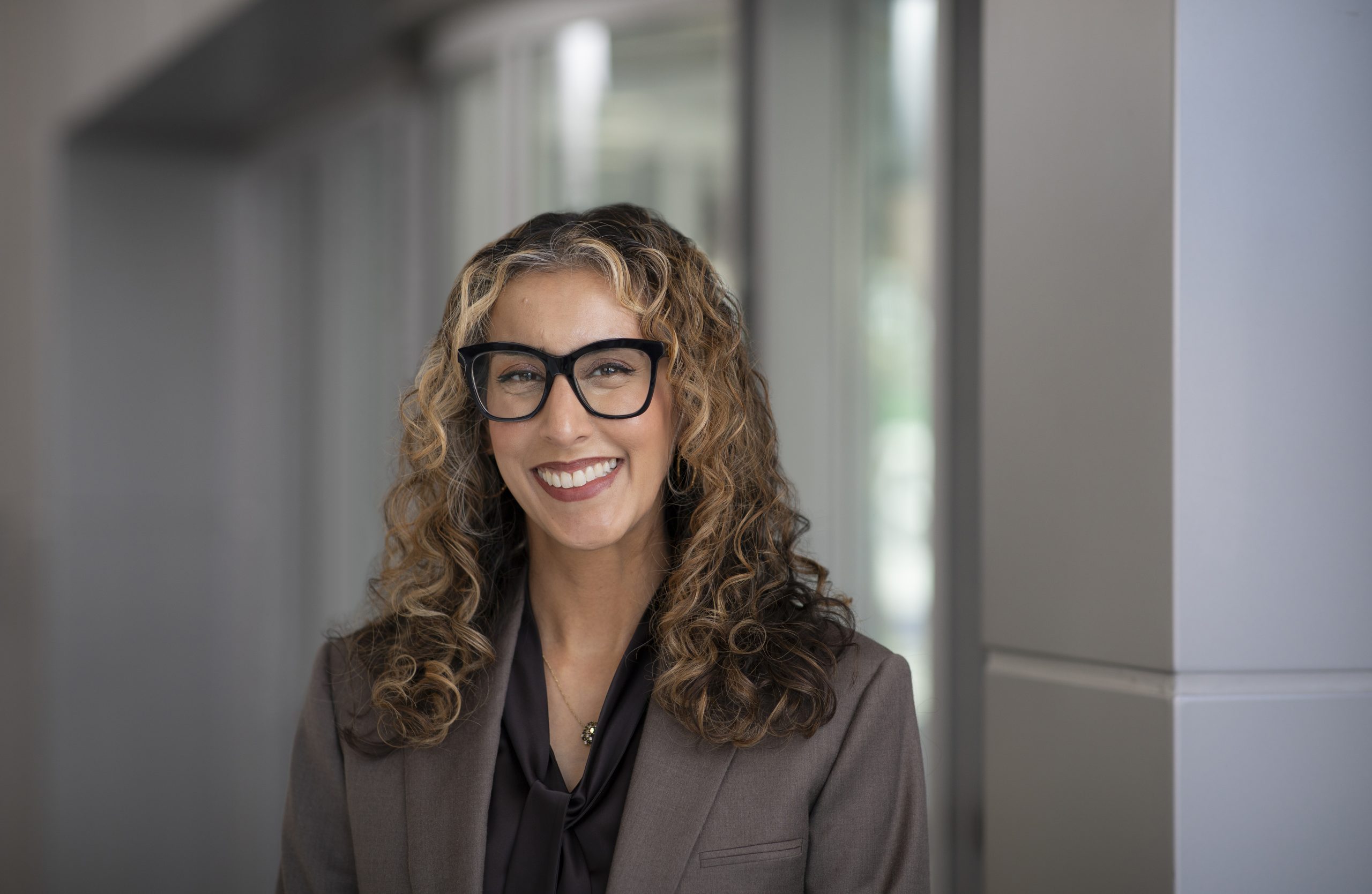
Deepika Slawek, MD, MPH, MS
Montefiore Medical Center and Albert Einstein College of Medicine
Dr. Deepika Slawek is an HIV primary care and addiction medicine physician and researcher practicing in the Bronx, NY. She attended University of Texas at Austin as an undergraduate and Texas A&M for medical school and then completed her medical training in New York State. She has been working in the field of HIV and addiction for over a decade.
This episode will discuss how stigma contributes to HIV acquisition, prevents people living with HIV from seeking and remaining in care, and effective, evidence-based strategies for mitigating stigma. The episode explore effective ways to reach, support, and treat individuals who use substances, who are at a high risk for acquiring HIV and, once acquired, falling out of care.
In this episode, we will:
- Analyze root-causes of HIV stigma;
- Explain the intersectionality of HIV risks and SUD;
- Identify evidence-based strategies for treating individuals with SUD who are also PLWH or at-risk.
Evaluation
Thank you for listening to Episode 5 of the “Stigma and Substance Use: Rewriting the Narrative” Podcast Series.
Please sign-up to our podcast mailing list above to be notified when the episode is release and to receive a link to complete SAMHSA’s required Training and Technical Assistance (TTA) GPRA Post-Event Form. This form will gather participant demographic information and satisfaction with the event. Responses are anonymous.
Presenters:
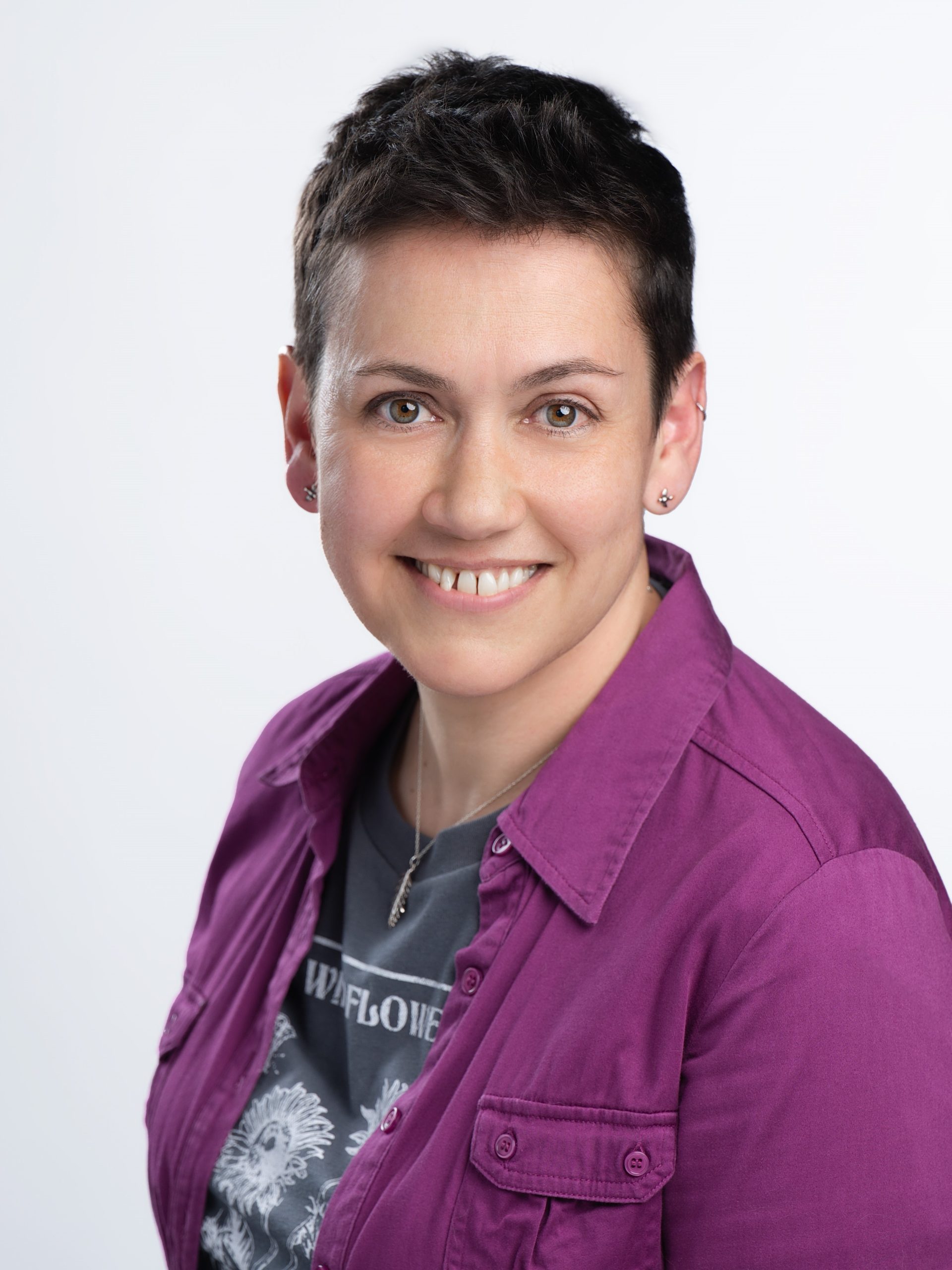
Meghann Perry, CARC certified Addiction Recovery Coach; RCPF Recovery Coach Professional
Meghann Perry Group
Meghann Perry, CARC, RCPF, is a Keynote Speaker, Educator and Addiction Recovery Coach Professional who has spent the last decade working in peer support, recovery advocacy and program design. She is best known for two groundbreaking programs: Recovery Storytelling and Embodied Storytelling and delivers high-impact presentations on storytelling as a tool for healing and advocacy for highly stigmatized conditions for organizations like NIH, NAADAC, HRSA, Peer Recovery Center of Excellence, and the Hazelden Foundation. Meghann identifies as a former drug user who passionately supports people across the full spectrum of substance use and leads a team of dedicated facilitators redefining education in the substance and mental health field.
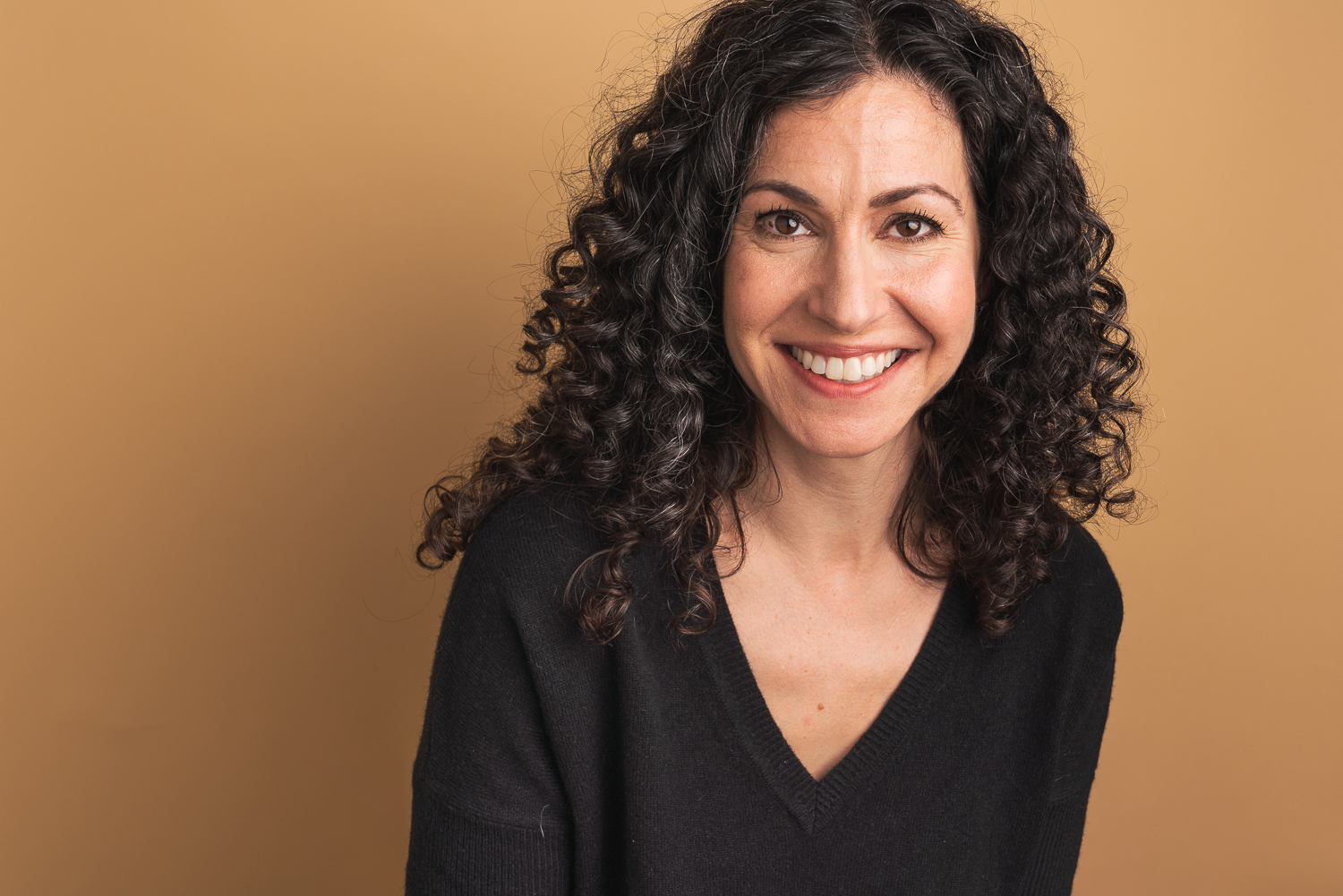
Dani Snyder-Young, PhD
Northeastern University
Dani Snyder-Young is Associate Professor of Theatre at Northeastern University. She led the NEA-funded Theatre participation and arts-integrated peer leadership in substance addiction recovery processes, which examines the role of theatre in supporting recovery from substance use disorder. Dani’s forthcoming book, Sticking Stigma: Affect, Performance, and the Movement of Social Norms explores how performances manipulate stigma to address social inequalities.
Host:
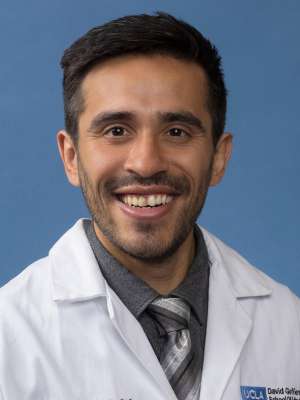
Felipe Vasudevan, MD, MSc
Montefiore Medical Center and Albert Einstein College of Medicine
Dr. Felipe Vasudevan completed an Internal Medicine & Addiction Medicine fellowship at NYU, and then ran a consult service at Woodhull Hospital in Brooklyn, NY before directing the Addiction Consult Service & Bridge Clinic at UCLA Hospital. His interests include reducing barriers to pharmacotherapy and addressing stigma in the hospital setting for people who use drugs and improving access and visibility to methadone and contingency management programs.
We’ve all absorbed the War on Drugs narrative—but even well-intended stories about substance use often reinforce stigma. In this episode, Meghann Perry and and Dr. Dani Snyder-Young explore how internalized shame shapes personal and public storytelling, influencing care access and policy. They discuss research and applied storytelling techniques that shift the dominant narrative, promoting dignity and inclusion for people with lived and living experience of substance use. By embracing strength-based storytelling, we can rewrite the script—reducing stigma, fostering resilience, and broadening pathways to well-being. Tune in to learn how you can help change the conversation around substance use to prioritize dignity for people who use and used drugs.
In this episode, we will:
- Describe the mechanism of belonging as it relates to storytelling, stigma and social support
- Identify the binary effect of redemption stories in the dominant narrative of substance use and recovery in the United States and how that impacts care for individuals
- Name and apply three characteristics of strength-based storytelling in their personal or professional role
Evaluation
Thank you for listening to Episode 6 of the “Stigma and Substance Use: Rewriting the Narrative” Podcast Series.
Please sign-up to our podcast mailing list above to be notified when the episode is release and to receive a link to complete SAMHSA’s required Training and Technical Assistance (TTA) GPRA Post-Event Form. This form will gather participant demographic information and satisfaction with the event. Responses are anonymous.
Presenters:
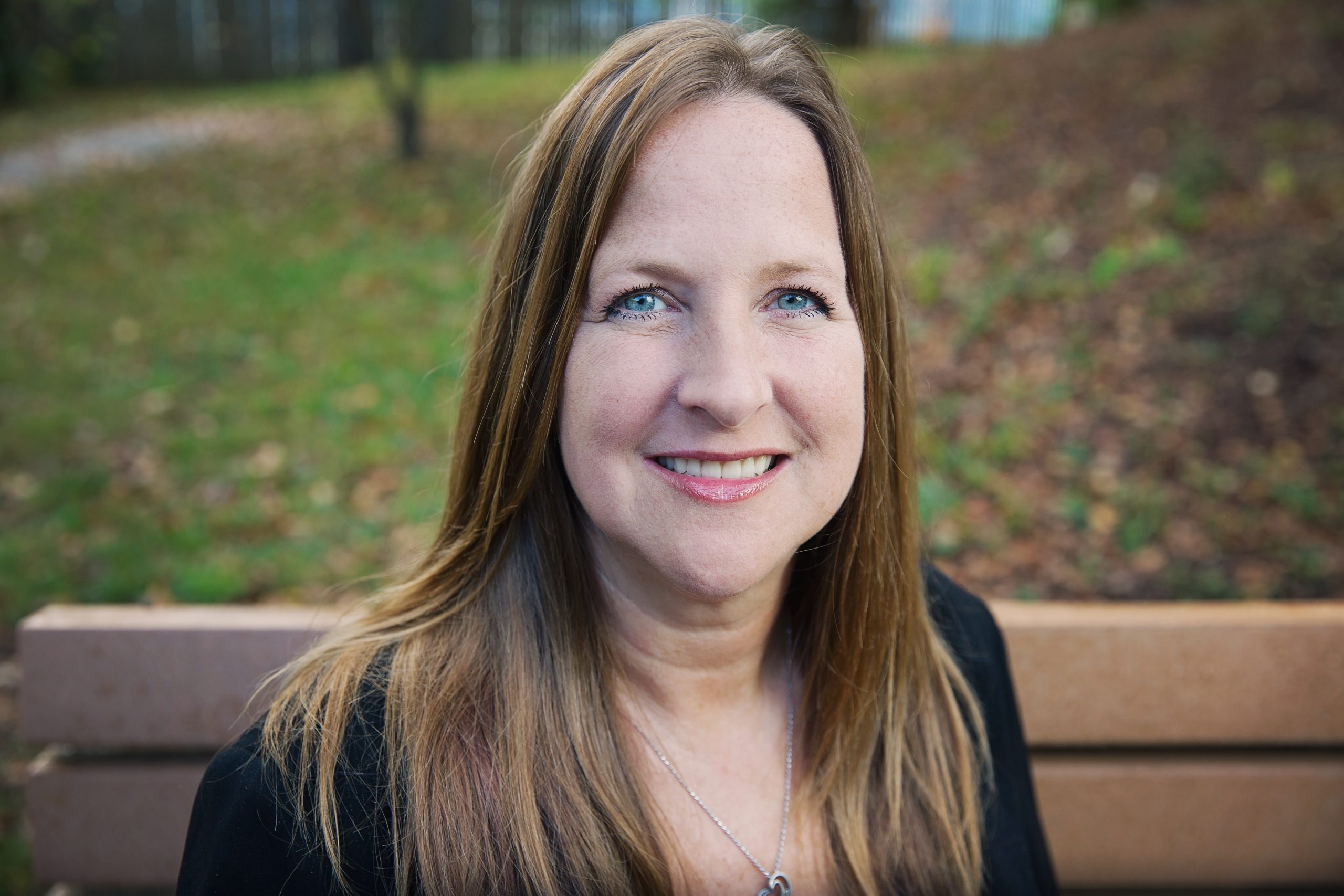
Michelle Kavouras, CDCS, NCAC I, NCRS
SpheraNova, EMPOWER, Sitka Counseling
Michelle Kavouras is a highly credentialed leader in addiction counseling, recovery support, and substance use care with nearly a decade of experience training professionals in evidence-based care. She serves on multiple boards and commissions, including the NAADAC National Certification Commission for Addiction Professionals and Sitka’s Health Needs and Human Services Commission, and co-chairs the Southeast Alaska Alcohol Alliance. A dedicated advocate, she collaborates on patient-centered research and works to advance stigma-free, person-centered care.
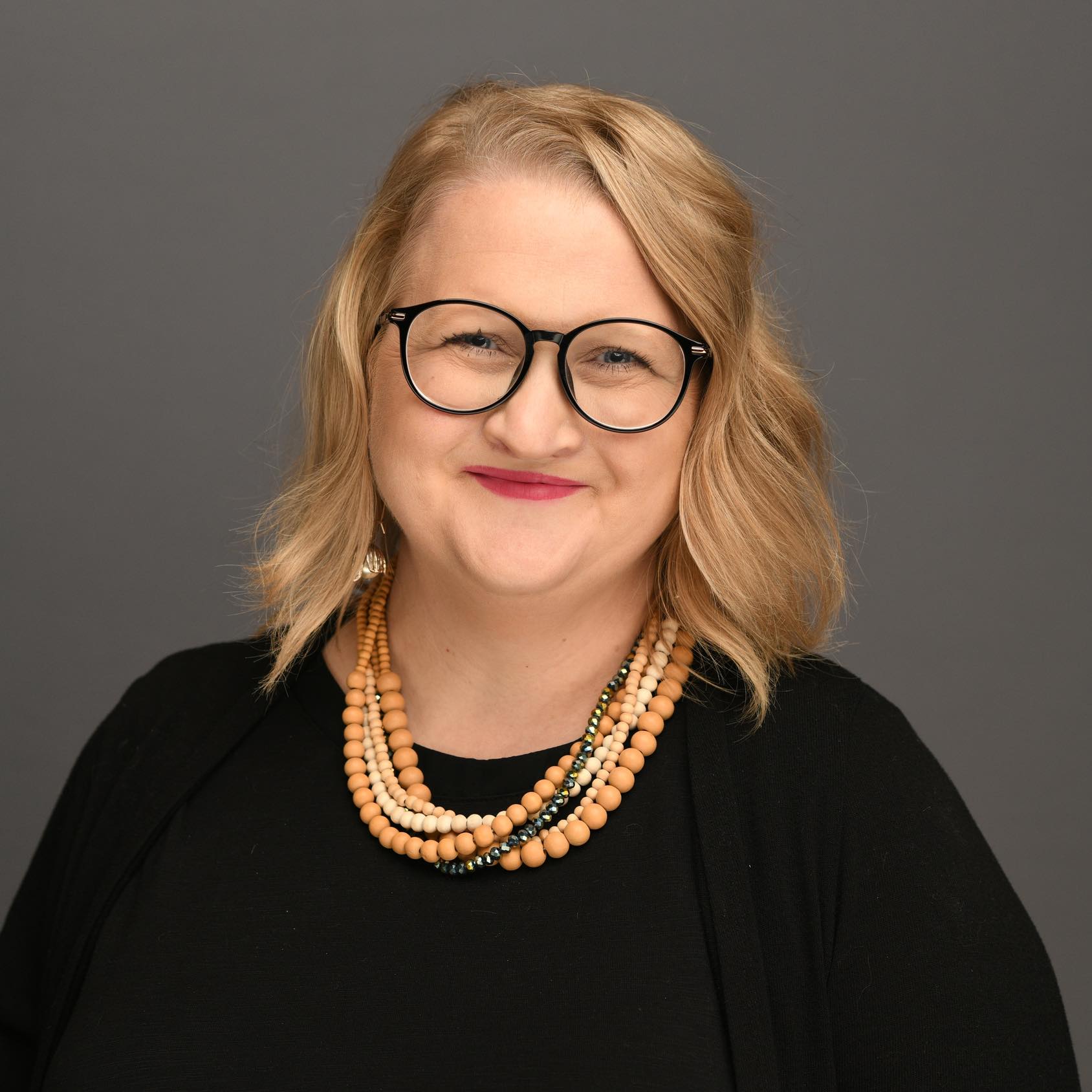
Nichole Nidey, PhD
University of Iowa College of Public Health
Dr. Nichole Nidey is a maternal-child health epidemiologist and assistant professor at the University of Iowa College of Public Health. Nidey founded the EMPOWER Project in 2019, which is a patient-centered collaborative of persons with lived experience of substance use during pregnancy. Through the EMPOWER Project, Nidey leads patient-centered research focused on improving healthcare for pregnant and postpartum individuals with substance use.
Host:
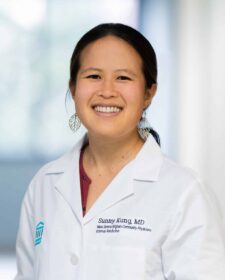
Sunny Kung, MD, FACP
Mass General Brigham Community Physicians
Sunny Kung, MD is the medical director of the Mass General Brigham Merrimack Valley Bridge Clinic in Haverhill, MA. She completed her addiction medicine fellowship at Massachusetts General Hospital and her internal medicine residency at Brigham and Women’s Hospital in Boston, MA. She is a dedicated primary care and addiction medicine clinician who specializes in caring for people who use substances, those who are unhoused, immigrants, people with limited English proficiency, and other marginalized folks. She believes in allowing people to live their lives with dignity and safety.
In this episode, we dive into why language in client and patient records matters—and how it can shape care experiences. We explore practical ways to use non-stigmatizing language in health records and discuss the role of electronic health record (EHR) in shaping documentation. Who designs these systems, and how can they be improved? We also examine real-world case scenarios where stigmatizing notes have had lasting impacts on individuals. Whether you’re a provider, policymaker, or advocate, this episode offers insight into making health records more respectful, equitable, and aligned with patient-centered care.
In this episode, we will:
- Recognize how the electronic health record (EHR) can negatively impact individuals.
- Implement changes to existing EHR systems to incorporate strength-based, person-first, and non-stigmatizing language.
- Reflect on the importance of self-awareness when writing notes and consider the potential uses and impacts of those records.
Evaluation
Thank you for listening to Episode 7 of the “Stigma and Substance Use: Rewriting the Narrative” Podcast Series.
Please sign-up to our podcast mailing list above to be notified when the episode is release and to receive a link to complete SAMHSA’s required Training and Technical Assistance (TTA) GPRA Post-Event Form. This form will gather participant demographic information and satisfaction with the event. Responses are anonymous.
Presenters:
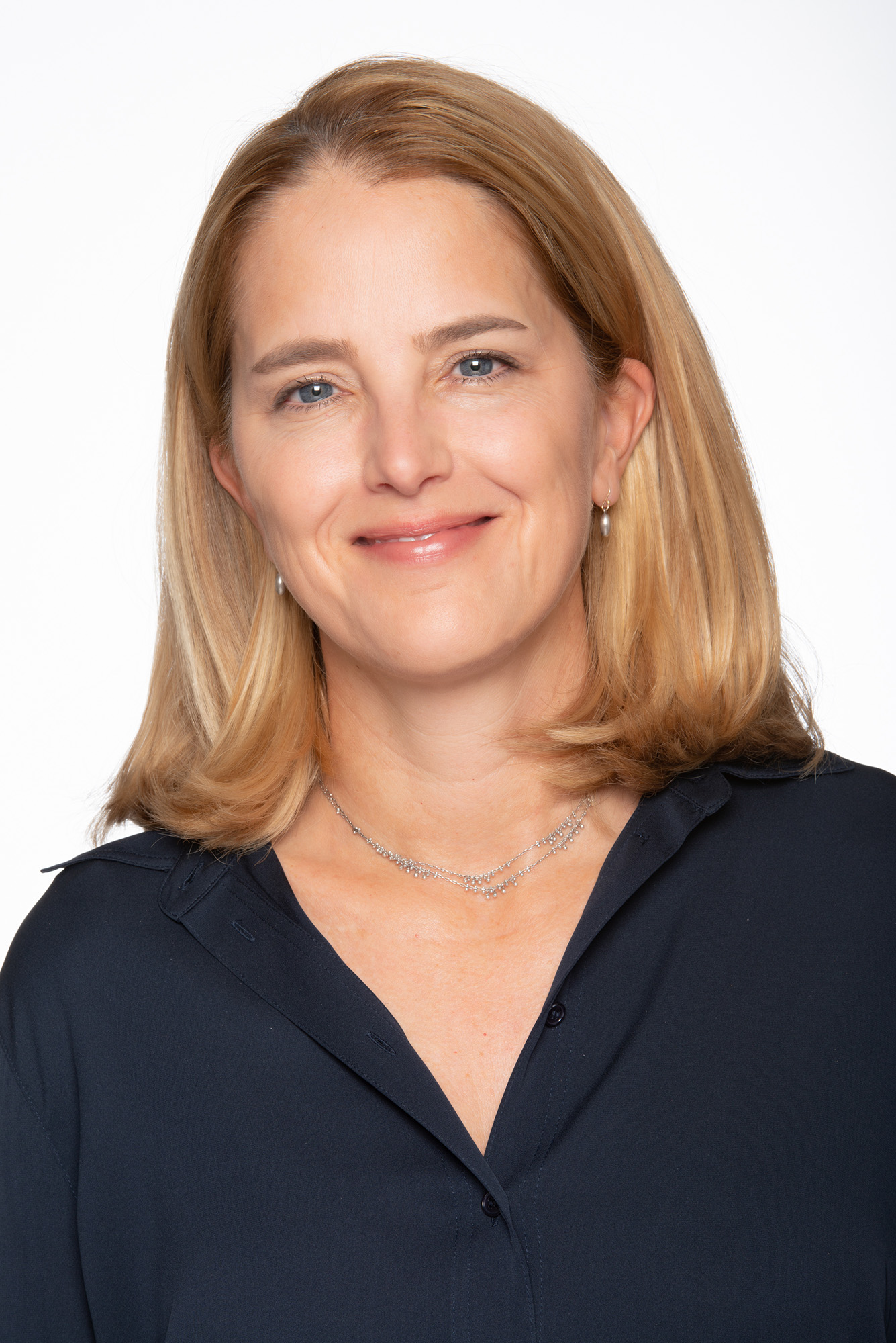
Carrie Wilkens, PhD
CMC: Foundation for Change, Center for Motivation and Change
Dr. Carrie Wilkens is a psychologist with over 20 years of experience in substance use, trauma treatment, and working with families of those struggling with substance use. She is the Co-Founder and President of the non-profit, CMC:Foundation for Change, and Co-Founder of the Center for Motivation and Change treatment network and the co-author of the award-winning books “Beyond Addiction: How Science and Kindness Help People Change” and “The Beyond Addiction Workbook for Family and Friends,” establishing her as a leader driving change in the field of addiction treatment.

Jeffrey Foote, PhD
CMC: Foundation for Change, Center for Motivation and Change
Dr. Jeff Foote is a psychologist and nationally-recognized clinical researcher with over 30 years of experience in evidence-based treatment for substance use disorders and trauma. He has been driving change in the field of addiction treatment as Co-President and CEO of CMC:Foundation for Change, Co-Founder of the Center for Motivation and Change and co-author of the award-winning books “Beyond Addiction: How Science and Kindness Help People Change” and “The Beyond Addiction Workbook for Family and Friends.”
Host:
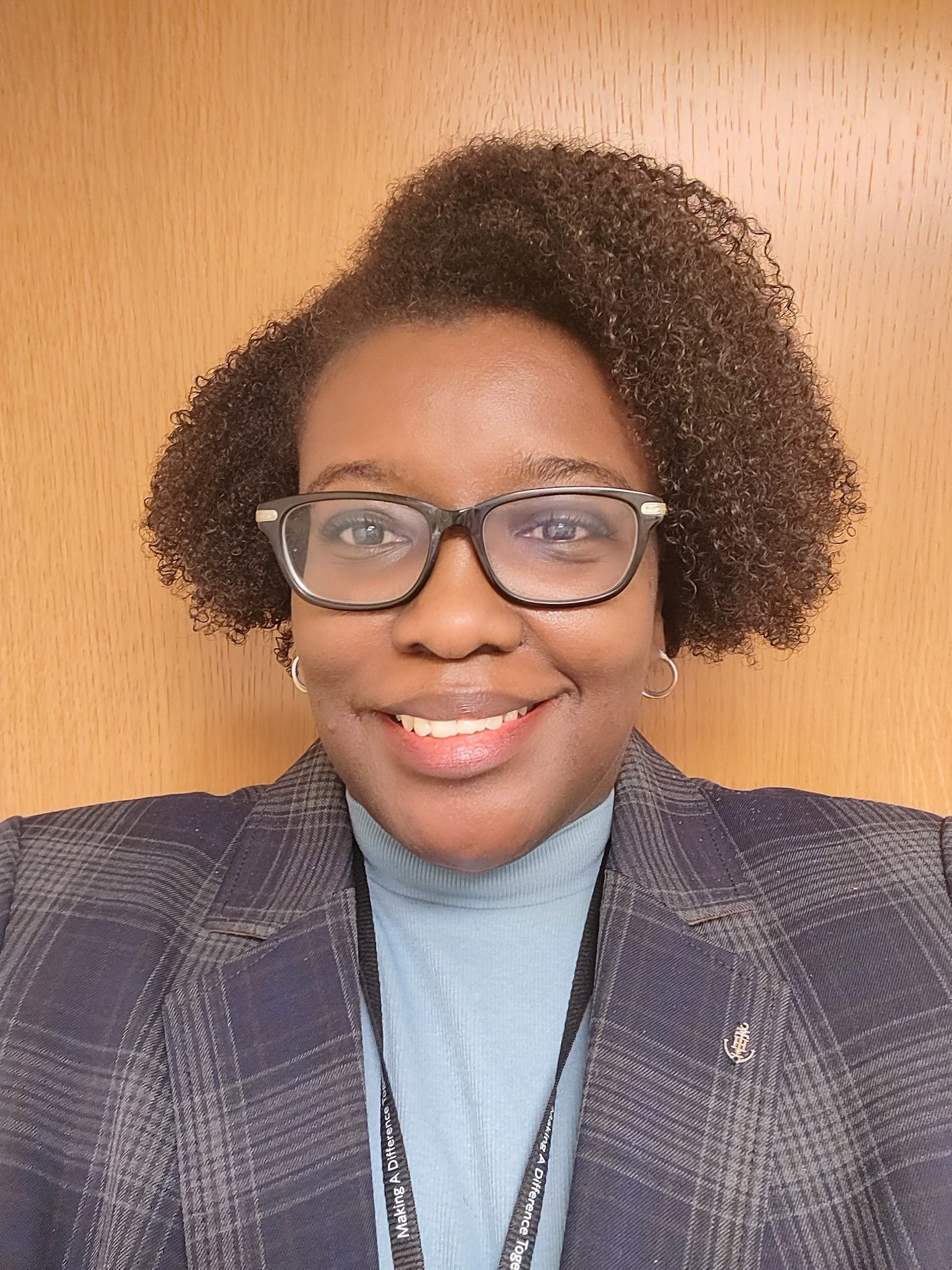
Brandee Madden, DNP, PMHNP-BC
Vanderbilt University School of Nursing
Dr. Brandee Madden is an Assistant Professor at Vanderbilt University School of Nursing. She is an experienced nursing educator and psychiatric mental health nurse practitioner who has provided treatment for mental health and substance use disorders in the community for over 15 years. Her clinical expertise is in the treatment of tobacco use in individuals with mental health and substance use disorders.
This episode explores the “contagious” nature of stigma in substance use disorders (SUDs), revealing how shame and discrimination spread beyond the 45-50 million Americans with SUDs to affect an estimated 45-300 million family members. While stigma’s impact on individuals with SUDs is well-documented, this conversation spotlights how families become “stigmatized by association,” driving them “underground” and leading to isolation, delayed help-seeking, compromised mental health, strained relationships, and poorer recovery outcomes for the entire family system.
In this episode, we will:
- Identify at least three ways stigma impacts family members of individuals with substance use disorders, including specific effects on mental/physical health, help-seeking behaviors, and family dynamics.
- Analyze how “stigma by association” creates unique barriers for families in accessing support and contributing to their loved one’s change process.
- Apply evidence-based communication strategies to reduce stigma when interacting with families affected by substance use disorders in professional or community settings.
Evaluation
Thank you for listening to Episode 8 of the “Stigma and Substance Use: Rewriting the Narrative” Podcast Series.
Please sign-up to our podcast mailing list above to be notified when the episode is release and to receive a link to complete SAMHSA’s required Training and Technical Assistance (TTA) GPRA Post-Event Form. This form will gather participant demographic information and satisfaction with the event. Responses are anonymous.
Sponsored by:
Funding for this initiative was made possible by cooperative agreement no. 1H79TI086770 from SAMHSA. The views expressed in written conference materials or publications and by speakers and moderators do not necessarily reflect the official policies of the Department of Health and Human Services; nor does mention of trade names, commercial practices, or organizations imply endorsement by the U.S. Government.
Podcast DisclaimerThe information, opinions, and recommendations presented in this podcast are for general informational purposes only and should not be considered medical advice. This podcast is not intended to replace professional medical consultation, diagnosis, or treatment. Any reliance on the information provided in this podcast is at your own risk. While every effort is made to present accurate and up-to-date information, AMERSA makes no warranty, guarantee, or representation regarding the accuracy or sufficiency of the content featured.
The views expressed by guests are their own and do not necessarily reflect the views of AMERSA. Their appearance on this podcast does not imply an endorsement by AMERSA of them, their viewpoints, or any entity they represent. Unless explicitly stated otherwise, AMERSA does not endorse, approve, recommend, or certify any information, product, process, service, or organization mentioned in this podcast. Information from this podcast should not be referenced in any way that implies such approval or endorsement.
AMERSA expressly disclaims all liability for any direct, indirect, incidental, or other damages resulting from an individual’s use of, reference to, reliance on, or inability to use this podcast or the information presented in it.
AMERSA People & Passion
In September 2021, AMERSA launched a 10-episode podcast series, AMERSA People & Passion, that explores the world of substance use education, research, care and policy. The podcast is sponsored by the ATTC Network and hosted by AMERSA then-Executive Director, Doreen Baeder (who retired in December 2021). Seven of the episodes feature subject matter experts across a variety of topics. The remaining three episodes are focused around “legacy interviews” with Richard Saitz, MD, MPH; Marianne Marcus, EdD, RN; and Sidney H. Schnoll, MD, PhD — who all shared their experiences as AMERSA members and discussed the history of the organization.

Read more about the series, and listen to episodes here.
